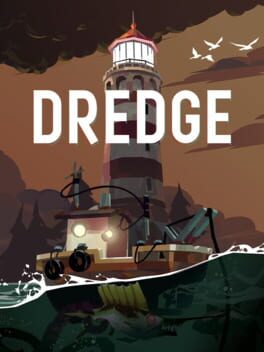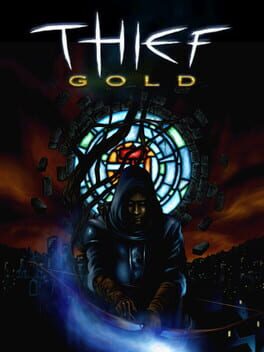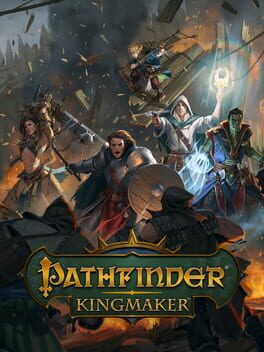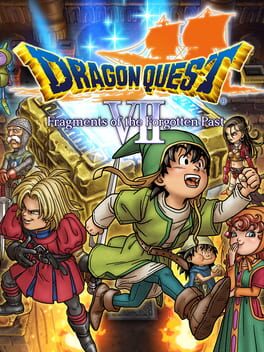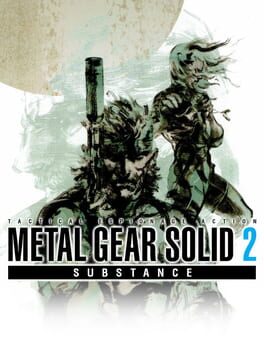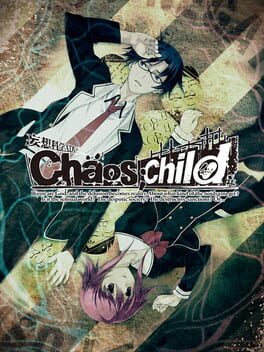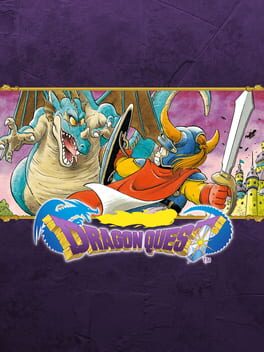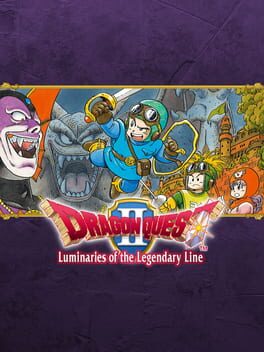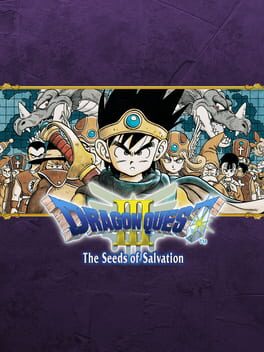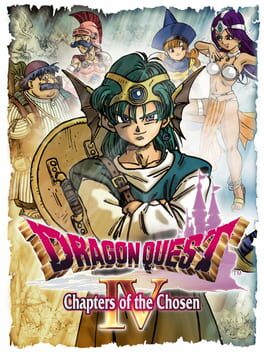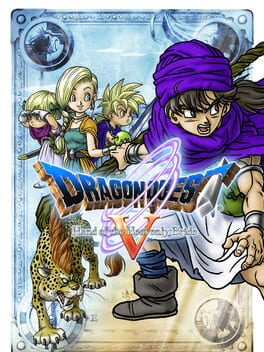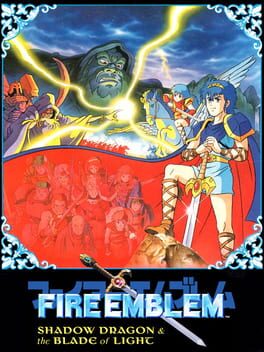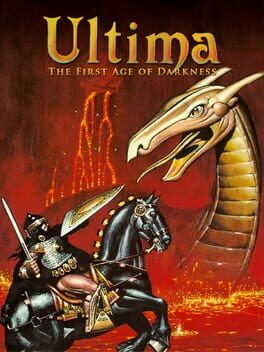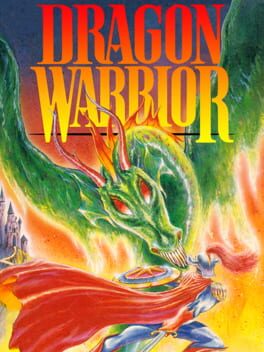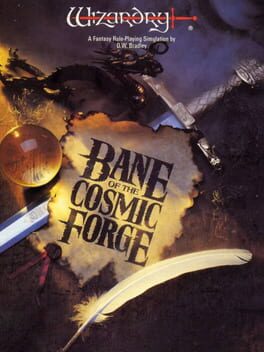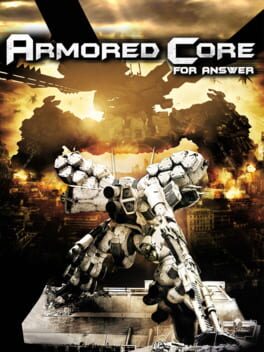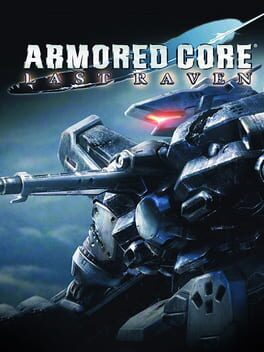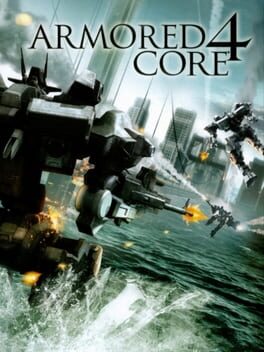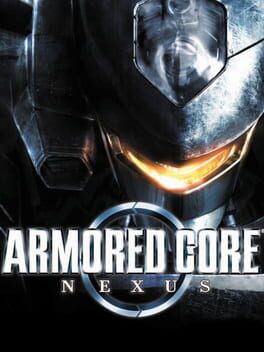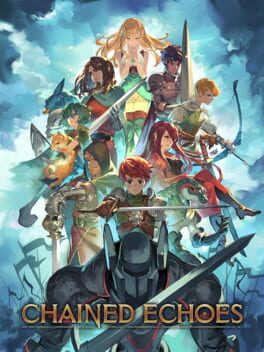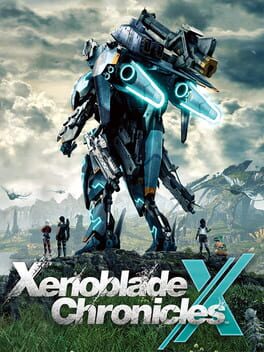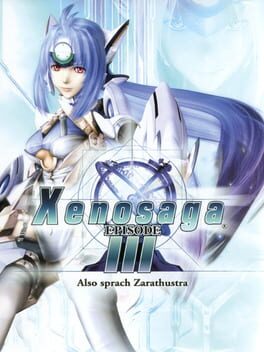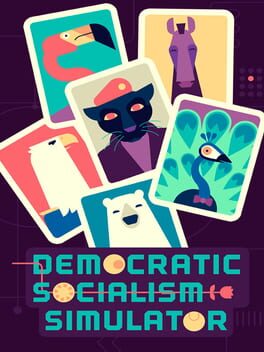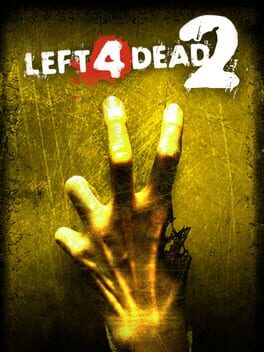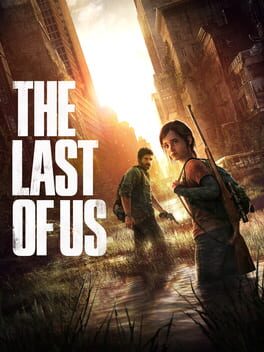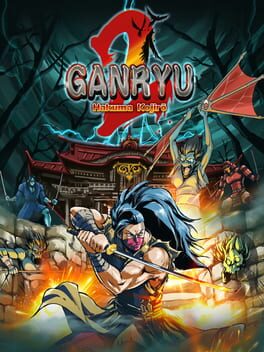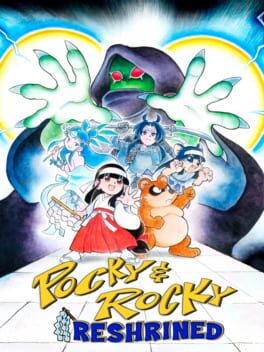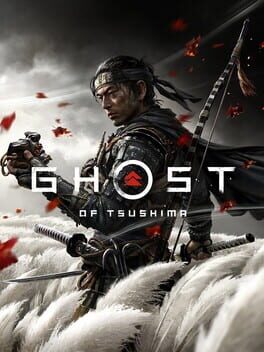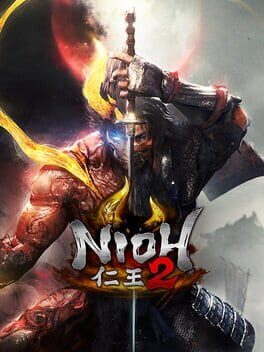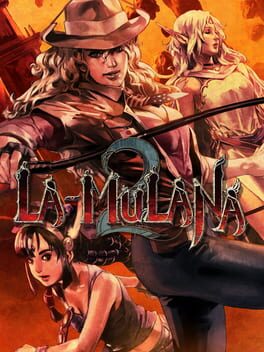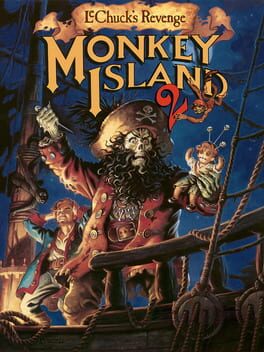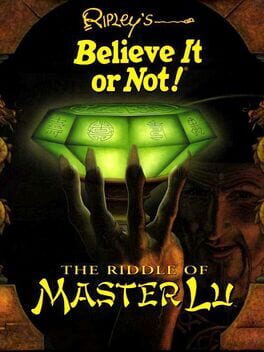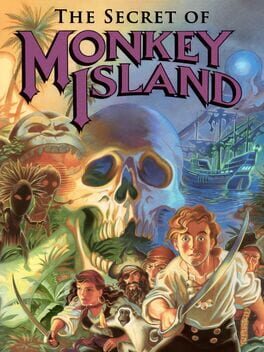235 reviews liked by valefordm
Dredge
2023
I really do love some solid inventory management. There's something about squeezing in the maximum amount of cargo, of having a container stuffed full of healing items, or treasure, or weapons, that feels really satisfying. And this game has that in spades.
Also: fishing!
It's short and sweet, I finished in about 20 hours and I did all* the sidequests except for "find all the rare fish". I found there are some pacing and balance issues, money stopped being a problem midway through the game, and by the end I was up to my ears in it, but still had miles to go to finish all the research. There are a lot of intermediate engines or nets or rods that feel a bit pointless, and I definitely struggled to tell the difference between +55% fishing speed and +100% speed. If it were a longer game these would be bigger issues, but since it's on the short side I was still having enough fun hunting down different fish.
One questline I would like to single out as really frustrating - there are four NPCs in the world who will ask you for a series of very specific fish, delivered to them in order. As soon as you talk to them, they're on a timer, and if you don't deliver their fish, they die, permanently removing the reward for the quest. In one case I bumped into one of these guys and he asked for a fish only accessible with a hook from a completely different questline I hadn't even discovered, so he was more or less doomed to starve. The quest rewards aren't dealbreakers so at the end of the day it's a "nice to have", but it felt so counterintuitive. I only satisfied one of these NPCs by avoiding him all game long until I had all the rods, engines and abilities. I never got a chance to use the quest reward before finishing the story after that!
Overall, a lovely wee treat that I'd highly recommend!
Also: fishing!
It's short and sweet, I finished in about 20 hours and I did all* the sidequests except for "find all the rare fish". I found there are some pacing and balance issues, money stopped being a problem midway through the game, and by the end I was up to my ears in it, but still had miles to go to finish all the research. There are a lot of intermediate engines or nets or rods that feel a bit pointless, and I definitely struggled to tell the difference between +55% fishing speed and +100% speed. If it were a longer game these would be bigger issues, but since it's on the short side I was still having enough fun hunting down different fish.
One questline I would like to single out as really frustrating - there are four NPCs in the world who will ask you for a series of very specific fish, delivered to them in order. As soon as you talk to them, they're on a timer, and if you don't deliver their fish, they die, permanently removing the reward for the quest. In one case I bumped into one of these guys and he asked for a fish only accessible with a hook from a completely different questline I hadn't even discovered, so he was more or less doomed to starve. The quest rewards aren't dealbreakers so at the end of the day it's a "nice to have", but it felt so counterintuitive. I only satisfied one of these NPCs by avoiding him all game long until I had all the rods, engines and abilities. I never got a chance to use the quest reward before finishing the story after that!
Overall, a lovely wee treat that I'd highly recommend!
Pepper Grinder
2024
Ah. That’s more like it.
As the one person I know who likes Donkey Kong Country, Drill Dozer, and that one burrowing escape sequence from Ori and the Will of the Wisps, I knew Pepper Grinder was going to be right up my alley. What impressed me though, was just how precisely the game melded its influences into something that felt simultaneously fresh yet familiar. The level design is classic obstacle escalation (introduce a concept, scale it up, throw in a twist, and then run the player through a final exam into their victory lap) with DKC inspired secrets with skull coin collectibles for unlocking secret levels. Many of the usual formula beats are present as well to force execution tests, from the usual moving parts in the forms of cannons, rope swings, and grappling points, to constantly present sources of danger like the freezing ocean or the temporary dirt patches created from cooling lava. What sets Pepper Grinder apart however, is that the terrain itself is the main obstacle. It feels like such a natural pairing to seamlessly mesh environmental navigation with the course’s very foundation, and the best moments of the game lean into funneling the player through various layers of shifting and isolated terrain while tearing through all that may stand in their way.
That said, I think to really understand the nuances of Pepper Grinder, one has to readily commit to its time attack mode. I could have been sold on the game-feel alone as an amalgam of Donkey Kong Country’s momentum physics and Drill Dozer’s force feedback, but playing under circumstances that force you to squeeze every possible second out of the timer gives the player a better appreciation of its movement mechanics. Pepper is not very fast on foot, nor can she naturally jump very far. Therefore, you’d think that most speed comes from tunneling through terrain, but it’s not quite that either. Rather, the player has to maintain momentum through the interplay of drilling and jumping by exiting terrain via the drill run (boosting right as you’re about to leave a patch of dirt), which commits the player to the projected arc leaving the terrain but with the reward of significantly more speed. The result is some of the weightiest and most satisfying movement I have ever experienced in any platformer. I was constantly figuring out new ways to save seconds by timing by boosts both within terrain and right before exiting terrain (since you can’t just spam boost and using it too early can lock you out from getting the necessary boost jump out of terrain), skipping certain obstacles entirely with well-placed drill runs, and figuring out how to manage my health to bypass unfavorable cycles and damage boost past mines and thorns. Some of those gold time attack medals were tight ordeals, but I absolutely savored every moment of the grind.
Bosses as a whole are a significant improvement from the usual quality of those in Donkey Kong Country. You’re not safe just waiting above ground, and burrowing to dodge attacks forces you to at least dash-dance underground since drilling means you can’t stay in one place. As a result, the player is constantly on the move, and you’re incentivized to do so anyways given that most of the bosses require multiple hits to defeat and aren’t the usual “invincible until they’re done attacking” crop from DKC. The biggest complaint I can levy here is that boss hit/hurtboxes can feel imprecise; I’ve heard that many players have had difficulty figuring out how to correctly drill into the beetle boss’s underbelly, and while I had no issues there, I did die a few times from the skeleton king’s heel hitbox where there was no visible attack in its vicinity. Still, I much prefer these boss fights over many of its peers, and figuring out when and how to best aim drill runs from the ground to speedrun bosses was just as much of a pleasure as speedrunning the courses themselves.
There are a few questionable design choices that could be touched upon here. Firstly, there’s a shop system present where you can purchase optional stickers from a gacha machine as well as temporary health boosts. The former is mostly forgivable given that they don’t impact the gameplay otherwise and can be cleared in about three minutes of purchasing and opening capsules. That said, I feel as if the latter could be removed entirely given that I never felt pressured to purchase insurance for courses and bosses, especially because I was often taking hits anyways to skip past obstacles and because you’re not going to regain the extra health capacity in-level once it’s gone. Secondly, bosses in time-attack mode force you to watch their opening unskippable cutscenes before getting to the action, and this gets extremely irritating when you’re constantly restarting fights to get better times. Finally, Pepper Grinder has a few gimmick areas in the forms of a couple of robot platforming segments, two snowmobile sections where you just hold forward on the control stick, and a couple of run-and-gun levels with little drilling involved. I can look past most of these given that they don’t take up much time and that I enjoyed all the minecart levels from DKC as is, though I do wish that they spaced the gimmicks apart a bit more given that levels 4-3 and 4-4 both have significant run and gun segments sending each course off.
If I did have any lasting complaints, it would be that I just want more of this game. Most players will finish adventure mode in under four hours. That said, even despite a lack of polish here and there, I absolutely adore Pepper Grinder. At this time of writing, I’ve 100%ed the game and even gone back to a few time trials after snagging all the gold medals just to further polish my records. It’s often difficult for me to pin down what makes a game feel good to play, but in this case, I just know. Pepper Grinder feels like an adrenaline rush made just for me, and though its execution barriers and short length will likely make this a tough sell for many, it is undoubtably some of the most fun I have had with a game this year. If you’re curious or enjoy anything that I’ve discussed in this write-up, please give the demo a shot. They don’t make 2D platformers like this anymore, and Pepper Grinder’s existence leaves me wondering why when they absolutely killed it on their first try.
As the one person I know who likes Donkey Kong Country, Drill Dozer, and that one burrowing escape sequence from Ori and the Will of the Wisps, I knew Pepper Grinder was going to be right up my alley. What impressed me though, was just how precisely the game melded its influences into something that felt simultaneously fresh yet familiar. The level design is classic obstacle escalation (introduce a concept, scale it up, throw in a twist, and then run the player through a final exam into their victory lap) with DKC inspired secrets with skull coin collectibles for unlocking secret levels. Many of the usual formula beats are present as well to force execution tests, from the usual moving parts in the forms of cannons, rope swings, and grappling points, to constantly present sources of danger like the freezing ocean or the temporary dirt patches created from cooling lava. What sets Pepper Grinder apart however, is that the terrain itself is the main obstacle. It feels like such a natural pairing to seamlessly mesh environmental navigation with the course’s very foundation, and the best moments of the game lean into funneling the player through various layers of shifting and isolated terrain while tearing through all that may stand in their way.
That said, I think to really understand the nuances of Pepper Grinder, one has to readily commit to its time attack mode. I could have been sold on the game-feel alone as an amalgam of Donkey Kong Country’s momentum physics and Drill Dozer’s force feedback, but playing under circumstances that force you to squeeze every possible second out of the timer gives the player a better appreciation of its movement mechanics. Pepper is not very fast on foot, nor can she naturally jump very far. Therefore, you’d think that most speed comes from tunneling through terrain, but it’s not quite that either. Rather, the player has to maintain momentum through the interplay of drilling and jumping by exiting terrain via the drill run (boosting right as you’re about to leave a patch of dirt), which commits the player to the projected arc leaving the terrain but with the reward of significantly more speed. The result is some of the weightiest and most satisfying movement I have ever experienced in any platformer. I was constantly figuring out new ways to save seconds by timing by boosts both within terrain and right before exiting terrain (since you can’t just spam boost and using it too early can lock you out from getting the necessary boost jump out of terrain), skipping certain obstacles entirely with well-placed drill runs, and figuring out how to manage my health to bypass unfavorable cycles and damage boost past mines and thorns. Some of those gold time attack medals were tight ordeals, but I absolutely savored every moment of the grind.
Bosses as a whole are a significant improvement from the usual quality of those in Donkey Kong Country. You’re not safe just waiting above ground, and burrowing to dodge attacks forces you to at least dash-dance underground since drilling means you can’t stay in one place. As a result, the player is constantly on the move, and you’re incentivized to do so anyways given that most of the bosses require multiple hits to defeat and aren’t the usual “invincible until they’re done attacking” crop from DKC. The biggest complaint I can levy here is that boss hit/hurtboxes can feel imprecise; I’ve heard that many players have had difficulty figuring out how to correctly drill into the beetle boss’s underbelly, and while I had no issues there, I did die a few times from the skeleton king’s heel hitbox where there was no visible attack in its vicinity. Still, I much prefer these boss fights over many of its peers, and figuring out when and how to best aim drill runs from the ground to speedrun bosses was just as much of a pleasure as speedrunning the courses themselves.
There are a few questionable design choices that could be touched upon here. Firstly, there’s a shop system present where you can purchase optional stickers from a gacha machine as well as temporary health boosts. The former is mostly forgivable given that they don’t impact the gameplay otherwise and can be cleared in about three minutes of purchasing and opening capsules. That said, I feel as if the latter could be removed entirely given that I never felt pressured to purchase insurance for courses and bosses, especially because I was often taking hits anyways to skip past obstacles and because you’re not going to regain the extra health capacity in-level once it’s gone. Secondly, bosses in time-attack mode force you to watch their opening unskippable cutscenes before getting to the action, and this gets extremely irritating when you’re constantly restarting fights to get better times. Finally, Pepper Grinder has a few gimmick areas in the forms of a couple of robot platforming segments, two snowmobile sections where you just hold forward on the control stick, and a couple of run-and-gun levels with little drilling involved. I can look past most of these given that they don’t take up much time and that I enjoyed all the minecart levels from DKC as is, though I do wish that they spaced the gimmicks apart a bit more given that levels 4-3 and 4-4 both have significant run and gun segments sending each course off.
If I did have any lasting complaints, it would be that I just want more of this game. Most players will finish adventure mode in under four hours. That said, even despite a lack of polish here and there, I absolutely adore Pepper Grinder. At this time of writing, I’ve 100%ed the game and even gone back to a few time trials after snagging all the gold medals just to further polish my records. It’s often difficult for me to pin down what makes a game feel good to play, but in this case, I just know. Pepper Grinder feels like an adrenaline rush made just for me, and though its execution barriers and short length will likely make this a tough sell for many, it is undoubtably some of the most fun I have had with a game this year. If you’re curious or enjoy anything that I’ve discussed in this write-up, please give the demo a shot. They don’t make 2D platformers like this anymore, and Pepper Grinder’s existence leaves me wondering why when they absolutely killed it on their first try.
Dark Souls III
2016
Thief Gold
1999
Ever since the Black Parade released to marvelous acclaim hitting Moddb’s mod of the year for 2023. I couldn’t help but ask myself “Is Thief good?” In an effort to see if the game holds up, I decided to start with the first installment before I inevitably reach the mod down the road. And I must say after 28 hours on expert difficulty. Thief Gold(Thief 1/T1) by Looking Glass Studio. Is a dark, thrilling, and fulfilling experience in reigniting all the checkmarks I like and love in the stealth realm. And I am glad to be back in the genre once again. From my days in Metal Gear, Syphon Filter & Old Assassin’s Creed.
Originally called Thief: The Dark Project. The gold edition adds three new missions to deepen the plot and five new enemies. Edited original missions with a slew of bug fixes. So this feels like a definitive edition. Although I did have to use several mods I’ll detail later on to bring the game up to modern standards.
The premise is simple and you control a single character Garret who is a master thief. With no special powers whatsoever. His days from being a homeless orphan were discarded long ago since he joined a secret order. Years later he leaves and decides to make it on his own. Delving into the path of thievery without remorse to fulfill his greed for money. He is ambitious, selfish, cynical, and an untraditional protagonist. All qualities I don’t like at all for a main character and yet by the time the end credits are rolling, I am very tempted to head right into the sequel to see what’s next in store for him.
Worldbuilding is subtle, dark, and strangely yet fittingly humorous at times. A mix of middle ages, dark fantasy, and on the cusp of an industrial revolution. With lore dropping from scrolls and conversations between guards during their breaks. Offering vital gossip on the citizenry, complaints of co-workers, and my personal favorite lore stories and convenient tips/hints that may connect to the main cast. A method to reach a previously unassailable location. Secrets will be revealed unintentionally and a good eavesdropper should without hesitation use it to their advantage to maximum effect. G-man will also monologue amongst himself and will at times drop interesting commentary during work. Usually comments like being dumbfounded or witty responses to abrupt changes in objectives. A nice change of pace from the otherwise silence permeating while you lurk in the shadows. Parchment readings and books offer insightful lessons and teachings from the factions of Hammerites and the Pagans. Both believe in their gods in a way bordering unhealthy zealotry and are at odds with one another. The supernatural elements took me by surprise many times. Spells, incantations, and rituals are fitting. Inducing a mystical wonder beyond the medieval. Zombies, ghosts, and malformed supernatural creatures are here to stay. Oh, and bugs like mutated spiders I didn’t think were a threat had me running away once I caught sight of them. Seriously, how can they jump so high and shoot acid!? Machinery such as factories, smelting tools, and items with a steady supply of lava provide their citizenry with new forms of artificial light instead of the traditional natural fire to illuminate surroundings. Creating an interesting level design throughout, a blend of medieval housing full of conventional bricks, wooden planks, and pavement with the power of adopting steel into the surroundings.
Quite ingenious for a stealth-based gameplay approach back in the old days. Erase approaches such as shooting from afar with guns or tasing anyone to oblivion. The game operates on a mission structure. Before a mission starts you are given a briefing of the events prior, a chance to buy equipment using gold earned from a prior mission, and a handy, but vague map. Embarking on a new place in the City at various times. Always looking forward to a new place to see the sightsand steal whatever I can of course. Sometimes your goals will change during an operation. Good o’l no plan survives contact with the enemy is important to keep in mind. Therefore, caution is advised when conducting skullduggery. But hey Garrett has immensely useful tools to help. No stamina gauge when swinging weapons. Innate ability knocking a bow and arrows. The blackjack is easily the #1 most useful weapon. Capable of one-shotting nearly every enemy into blissful unconsciousness. They never get back up despite hours passing by too! You can move them into shadowed areas preventing patrols from encountering them and thus initiating an alarm at a whole base. Arrows dipped in fire, water, gas, and rope are likewise vital in completing a task. Blasting creatures with fire is like launching a missile capable of damaging multiple enemies. Water aids in dousing torches causing the light in room/s to darken and therefore allowing one mistah G to conduct his activities in better stealth mode than dressing up like an orange ninja from a shinobi world. Gas is powerful. No not fart ones, these kinds if launched correctly can take out groups of enemies into dreamland. Vital when being chased by a horde of angry guards…
Additionally, the rope arrow single-handedly changed my whole experience. Making me think outside the box. Reminds me of using the GLOO gun from Prey and applying the weapon to reach places I wouldn’t otherwise be allowed to exploit regular means. The cable, by comparison, allows one to hit any wooden surface dropping a decent length of string. Becoming instantly available for climbing. As a result, you can traverse higher elevations. Furthermore, one can retrieve their shaft if applicable to re-use once again making the tool highly versatile in nearly any sticky situation he’s subjected to. Trust me you’ll need it when you're at a rock and hard place with nearby zombies closing in on your position with nowhere to run except upon checking your surroundings a wooden beam is above. Maybe a handy tool would surely be useful now.
Level design in every assignment is intricate, maze-like, and deep. Displaying an awesome sleight of hand in the dev’s works to craft initially simple environments then suddenly catching me off-guard by transforming into a large several corridors and passageways leading a lost one into a room full of secrets. It is deep and chock full of hidden areas that can be unlocked from levers, switches, and cleverly tucked away corners. Intrinsically linked in the environment. Delivering a cool verticality and thorough ‘puzzle-like’ solving when applicable. The start of any new venture won’t be the same to some extent in the end portion upon completing all your objectives. You will see sprawling organized streets and then hit unfamiliar ruined suburbs and towns. Dive underwater and emerge in desolate gray caves emerging into a facility of machinery mixed with stone masonry. Similar, but different to how dungeons are made from a certain Zelda series. Full of traps, few floors, and twisting passages that can be confusing to any newcomer unused to the design. One of my favorites is encountering an awesome Pixar-like ‘room’ essentially allowing me to venture inside and somehow escape replicating a [T$%] Story-like design. Someone at Looking Glass has good taste being inspired by the 1995 film huh. And to think this was an optional target I could’ve missed. I. Am. Amazed. Sure the rest of the content isn’t filled to the brim with cool sets like those, but to a degree, they offer a unique hodgepodge of interesting locales to wonder and gawk at least. As a newcomer coming into the series I did not expect at all to admire the sheer size of these levels. Some are more subtle in ways before a certain fire nation attacked delving into the mysticism of earth, wind, and water extending the dev’s creativity to their utmost limit. The elements become more profound and are used intricately as I delve deeper into the endgame. Changing the propensity of manmade structures into natural habitats. Surfaces of the earth and elevating platforms in one section demonstrate the move from traditional simple human paths to complex passageways. Can be confusing at times, but hey remember! You have a handy compass and a map too! So all is not lost. A master thief enjoys establishing their path forward through balanced platforming and embracing the wonders of being lost in the thrill of discovery.
Hell the power to jump provides excellent mobility in areas and the level design pays off in spades demonstrating to great effect. For example, Imagine facing a fort with no possible entryway. Ok well, let me go around to see for any wooden roofs or beams. Voila, there is! Shooting a rope arrow then. I climb and then acrobat onto the rampart. But wait, the door is locked inside! Hmm. The new plan is to head to another rooftop and get inside from there. I climb to the nearest rampart point then give myself a boost and ledge grab my way onto my destination. Successfully entering with no one aware. The ledge grab is super satisfying to enact every time. Although I quickly save before I launch myself just in case I fail. Yet holding the jump button is easy to maneuver and painless to execute.
Almost delving into the point of frustration at times, yet never truly becoming mad to the nth degree I wanted to throw my controller. Perhaps due to the save at anytime system in place making retries quick and painless. It is a relief to operate an easy system to retry failed attempts since most levels are so large. Not an open world at all. Garrett conducts most of his missions at different new locations within the metropolis, which we can explore without a time limit. And there’s always something new to look forward to. I ventured into a manor to steal a scepter. Dived into the pits below to enter hidden caverns and reach a prison facility. Sought treasure in abandoned ruins, boldly stole a precious item between two thieves' guilds, and enacted revenge on a rich dude who tried to assassinate me. Seriously the gall of that guy.
Sound design is brilliant, harsh, intense, and fair. And this is weird. Usually, I praise the heck out of the soundtrack, and while it is good. In Thief I found it more enjoyable to analyze how the gameplay and level design work in tandem with the soundscape. Each step you take and every breath you make is calculated. Go on the steel floor versus carpet and rugs and you can see the clear difference upon nearby patrols. Rugs and carpets muffle your steps while treading on steel produces loud noises capable of making any close enemy's senses go on alert. Any action like swinging your sword, launching an arrow, or even bringing out blackjack to play whack a guard heightens an enemy's awareness. G-dude will exhale after an action and it's gotten to a point where I hold my breath whenever I have a close encounter. Exhaling once the coast is clear. Sights and sounds are interconnected. If you’re in a very dark area, chances are you become neigh invisible compared to a brightly lit room. Staying in the shadows like a sneaky fella pays off. And thankfully, you can stay in a crouched position than a normal pose to conduct your sneaky endeavors. Harsh, but I kid you not I repeatedly felt it was balanced throughout at no point during my time did I feel it was brutally unfair at all times. Rather the usage of noise in this instance facilitates between easy to hard and complex as you dive deeper into the latter stages. As if the devs are saying “Hey, we are increasing the difficulty gradually, no steep cliffs or curveballs.” And I like it. Keeps things fresh and exciting to uncover new hurdles. Supernatural entities like zombies and spirits have this ghastly voice. I found myself with chills crawling up my back. And goodness the regular harmless citizen will shout for help to call attention to your current position. Tension is alive. Stress remains an ever-constant companion when pursued, and patience is needed every day for every hour.
Lastly, I also want to praise the main objectives of missions and AI. The latter for being smart and dumb. Patrols once memorize their route and what their limit is. Abusing their ai becomes rinse and repeat and oh so satisfying. Never waking up after becoming unconscious. Some enemies of different classifications will vary in their sight and danger capability. I.E. Seeing farther and more acutely aware of their surroundings than the usual shmuck of a guard with base intelligence. Think of them as elite guards who have an intruder radar built in updated to version 2.0 than the base version. Hearing better on how loud footsteps are near along with acute 20/20 vision if close in line in sight. This is fascinating and as I progressed deeper into the game, proved once again the devs are challenging me to be better. Goals likewise increase in complexity. You have standard, hard, and expert. Differs from traditional modifiers of upping the enemy's health I usually see in other games. Their parameters increase meaning more tasks to do. A 'normal' setting would indicate one or two retrieve an item and escape. 'Hard' adds a couple more like finding another item in conjunction with the main goal. Expert unleashes a full page of tasks to do. From not killing anyone, finding multiple items, checking with a friend of yours, and attaining a set amount of money all while completing the main quest and escaping to boot. Here are several examples of differences in difficulty. Insane. Furthermore, as I continued with 'expert' on all missions, they largely increased my time in a level due to how large they can be. I usually spent an hour or two depending on the size. Only occurred on max settings. If you try the standard option you can breeze through levels much faster. The addition of higher parameters causes an interesting shift to occur for the player. Thus I had to explore as much as possible, find hidden secrets, embrace the longer plans, being meticulous to survive and not incur any of the killings. The game is much easier killing anyone you come across. But a master thief should never kill. Only retrieve what was ordered and then get out without a fuss.
Time for my mixed feelings. Not a positive or a negative. Just some points from the game I think could be improved, tweaked for the better, and concerns I had. Didn’t affect my overall experience in a major manner.
First, same old, same old textures - Once I saw gray walls, gray bricks, stone pavement, same dirt in more than half of the missions, and frequent density in the latter stages it all became blurred together. Brought up with the maze-like corridors. I felt myself seeing the familiar paths without end. You don’t have a minimap either except a paper map that will vaguely pinpoint where you are. Therefore I had major deja vu. “Haven’t I been here before?” Thankfully, this isn’t egregious and the level variety for what it’s worth elevates everything else. Making it not so noticeable to see constantly. Makes me wonder if the sequel shakes things up a bit with colorful terrain when appropriate. I’m not asking for a rainbow from the color spectrum, merely suggesting slightly distinct patterns.
Second, Some objectives can be a bit vague to find. Like Mission 3. To retrieve the soul of the mystic required me to check everywhere and refer to my papyrus notes for hints and clues. Further, targets or items are not given exact instructions sometimes. Up to you to piece things together. Granted I personally like the non-approach to hand-holding, but some of these goals can be a real head scratcher. If you don’t come across hints and clues, eavesdropping a guard or finding a key to unlock another passageway or door is often the right path forward. Gentle reminder to explore thoroughly. Or use a guide when needed.
Third, May need a tool like a fire, water, or rope arrow to progress. While not required for every assignment. The wire is invaluable and shouldn't be utilized every so often at every opportunity. Elementals to a lesser degree, but still keep them in stock. Most of your inventory is consumables. And while you can find new ammo during a heist, it is best to at least save a decent amount. For situations when you require them. Sucks to use up all of your stock for minor loot grabbed when they may be needed for a critical venture.
Fourth, Wish some missions had health potions available close by. They’re pretty scarce in a job. Some later missions they in my opinion feel needed to help progress rather than me forcing a quicksave and quickload. Saving my health. Enemies can swarm you if you’re not careful and having more health is better than being one-shot. G-guy isn’t some deadliest warrior. So don’t think you can expertly assassinate any bloke. Keep in mind, I played on expert which usually required no bloodshed. Lowering settings offers no restrictions to eliminating anyone.
Fifth, Controls can take some getting used to. I tried keyboard and mouse and found the initial impression cumbersome so I switched to a controller setup and found it far better. Only had to input a couple more keybinds manually and I was fit as a fiddle tosteal! Borrow items. I suggest changing them if you feel weird handling your main character.
Sixth, due to the title being more than two decades old I highly recommend some of these mods I installed to grant an enhanced vanilla experience. Most you can find via a respective PC gaming wiki article. I did use a faithful texture pack. Not the popular one. Feel they change the original textures too much. I’ll leave the choice of what pack to choose up to you. I prefer Enhancement Pack 2.0 alpha.
Mods:
Unofficial patch for Thief 1/Gold - “improves compatibility with new pcs significantly, fixes graphic issues, adds support for widescreen resolutions and much more.”
Texture pack - “Replace all the old, low-quality objects and textures from Thief 1 and 2 with versions that have higher polygon counts and texture resolutions, while keeping as close to the originals as possible.” - This is the hardest mod to install. For some reason, the directions given resulted in half of the textures being improperly replaced. Displaying half high quality and half low quality. Inside you need to edit an ini file to put in the correct mod_path. Here is what I had that finally got everything to work. Hope it works for everyone else. If not, your mileage might vary.
mod_path usermods+mods\packfix+mods\candles+mods\EP\Thief1+NecroAge\Thief1+NecroAge+EP2\Thief1+EP2+mods+mods\t2skies+mods\EP+FMdml
Take a screenshot before the mod is installed and after to see if everything worked out. The rest of the mods I didn't have any trouble inputting.
Subtitles - Self-explanatory. In-game there is no option for subs. With this mod, you can read the spoken dialogue instead of straining your ears.
Sound Enhancement Pack - Makes all sound enhanced and not muddled. Providing clearer audio in both speech and sfx.
60 FPS Video Pack - Original videos are in a low resolution. With the video pack, all the videos are replaced with higher framerate and resolution.
Aside from minor tinkering to get the game up to speed and my barely noticeable mixed feelings. Thief shines when unconventional level design meets strong simple foundations in the gameplay to accentuate and enhance both categories. At its worst players(maybe newbies) may have difficulty in grasping the maze-like paths to reaching their objectives along with vague to almost obscure hints to their solutions(not always, uncommon I think). More so on increasing levels of difficulty than normal I feel. The central narrative I expected to be boring. And in turn I was mentally preparing myself for underwhelming. So to my delight, I was extremely glad to be wrong and found myself beset with a decent narrative and ultimately a likable protagonist.
Finally reaching the end of my trail I found Thief Gold impressed me to a degree I can’t stop thinking constantly about the missions inside. I adore it so much I had to hold off on playing the rest of the series so I won’t get burned out if I continue to run-non-stop at every entry. Filled with lengthy missions depending on difficulty and fair gameplay mechanics to tackle in whatever and however manner you so choose. A freedom in gameplay philosophy I love! And honestly its given me more thought to level design in general and the approach of AI to objectives. I encourage anyone to give it a shot. Especially those who love Stealth or dipping their toes into the genre. For those curious about this old title, it still holds up quite well. Especially if you installed mods to bring it up to modern standards. And hey here’s one tidbit I found fascinating. Turns out Ken Levine worked on Thief along with Warren Spector. These guys would ultimately father some well-known titles down the road. Pretty insightful stuff. I bet we're in for Shocking Examples down the road.
8.5/10
References & Additional Material:
Thief Black Parade Mod
Different Examples of Difficulty
Thief 1 Credits
Mods - Thief PC gaming wiki - Thief 1/Gold Unofficial patch - Sound Enhancement Pack - 60 FPS Video Pack - Texture pack
Subtitles
Edited: 4-3-24 - Small correction on Blackjack use. From human to nearly every enemy. Thanks to @blackcat for the correction! After the small edit. 99% of review still intact.
Originally called Thief: The Dark Project. The gold edition adds three new missions to deepen the plot and five new enemies. Edited original missions with a slew of bug fixes. So this feels like a definitive edition. Although I did have to use several mods I’ll detail later on to bring the game up to modern standards.
The premise is simple and you control a single character Garret who is a master thief. With no special powers whatsoever. His days from being a homeless orphan were discarded long ago since he joined a secret order. Years later he leaves and decides to make it on his own. Delving into the path of thievery without remorse to fulfill his greed for money. He is ambitious, selfish, cynical, and an untraditional protagonist. All qualities I don’t like at all for a main character and yet by the time the end credits are rolling, I am very tempted to head right into the sequel to see what’s next in store for him.
Worldbuilding is subtle, dark, and strangely yet fittingly humorous at times. A mix of middle ages, dark fantasy, and on the cusp of an industrial revolution. With lore dropping from scrolls and conversations between guards during their breaks. Offering vital gossip on the citizenry, complaints of co-workers, and my personal favorite lore stories and convenient tips/hints that may connect to the main cast. A method to reach a previously unassailable location. Secrets will be revealed unintentionally and a good eavesdropper should without hesitation use it to their advantage to maximum effect. G-man will also monologue amongst himself and will at times drop interesting commentary during work. Usually comments like being dumbfounded or witty responses to abrupt changes in objectives. A nice change of pace from the otherwise silence permeating while you lurk in the shadows. Parchment readings and books offer insightful lessons and teachings from the factions of Hammerites and the Pagans. Both believe in their gods in a way bordering unhealthy zealotry and are at odds with one another. The supernatural elements took me by surprise many times. Spells, incantations, and rituals are fitting. Inducing a mystical wonder beyond the medieval. Zombies, ghosts, and malformed supernatural creatures are here to stay. Oh, and bugs like mutated spiders I didn’t think were a threat had me running away once I caught sight of them. Seriously, how can they jump so high and shoot acid!? Machinery such as factories, smelting tools, and items with a steady supply of lava provide their citizenry with new forms of artificial light instead of the traditional natural fire to illuminate surroundings. Creating an interesting level design throughout, a blend of medieval housing full of conventional bricks, wooden planks, and pavement with the power of adopting steel into the surroundings.
Quite ingenious for a stealth-based gameplay approach back in the old days. Erase approaches such as shooting from afar with guns or tasing anyone to oblivion. The game operates on a mission structure. Before a mission starts you are given a briefing of the events prior, a chance to buy equipment using gold earned from a prior mission, and a handy, but vague map. Embarking on a new place in the City at various times. Always looking forward to a new place to see the sights
Additionally, the rope arrow single-handedly changed my whole experience. Making me think outside the box. Reminds me of using the GLOO gun from Prey and applying the weapon to reach places I wouldn’t otherwise be allowed to exploit regular means. The cable, by comparison, allows one to hit any wooden surface dropping a decent length of string. Becoming instantly available for climbing. As a result, you can traverse higher elevations. Furthermore, one can retrieve their shaft if applicable to re-use once again making the tool highly versatile in nearly any sticky situation he’s subjected to. Trust me you’ll need it when you're at a rock and hard place with nearby zombies closing in on your position with nowhere to run except upon checking your surroundings a wooden beam is above. Maybe a handy tool would surely be useful now.
Level design in every assignment is intricate, maze-like, and deep. Displaying an awesome sleight of hand in the dev’s works to craft initially simple environments then suddenly catching me off-guard by transforming into a large several corridors and passageways leading a lost one into a room full of secrets. It is deep and chock full of hidden areas that can be unlocked from levers, switches, and cleverly tucked away corners. Intrinsically linked in the environment. Delivering a cool verticality and thorough ‘puzzle-like’ solving when applicable. The start of any new venture won’t be the same to some extent in the end portion upon completing all your objectives. You will see sprawling organized streets and then hit unfamiliar ruined suburbs and towns. Dive underwater and emerge in desolate gray caves emerging into a facility of machinery mixed with stone masonry. Similar, but different to how dungeons are made from a certain Zelda series. Full of traps, few floors, and twisting passages that can be confusing to any newcomer unused to the design. One of my favorites is encountering an awesome Pixar-like ‘room’ essentially allowing me to venture inside and somehow escape replicating a [T$%] Story-like design. Someone at Looking Glass has good taste being inspired by the 1995 film huh. And to think this was an optional target I could’ve missed. I. Am. Amazed. Sure the rest of the content isn’t filled to the brim with cool sets like those, but to a degree, they offer a unique hodgepodge of interesting locales to wonder and gawk at least. As a newcomer coming into the series I did not expect at all to admire the sheer size of these levels. Some are more subtle in ways before a certain fire nation attacked delving into the mysticism of earth, wind, and water extending the dev’s creativity to their utmost limit. The elements become more profound and are used intricately as I delve deeper into the endgame. Changing the propensity of manmade structures into natural habitats. Surfaces of the earth and elevating platforms in one section demonstrate the move from traditional simple human paths to complex passageways. Can be confusing at times, but hey remember! You have a handy compass and a map too! So all is not lost. A master thief enjoys establishing their path forward through balanced platforming and embracing the wonders of being lost in the thrill of discovery.
Hell the power to jump provides excellent mobility in areas and the level design pays off in spades demonstrating to great effect. For example, Imagine facing a fort with no possible entryway. Ok well, let me go around to see for any wooden roofs or beams. Voila, there is! Shooting a rope arrow then. I climb and then acrobat onto the rampart. But wait, the door is locked inside! Hmm. The new plan is to head to another rooftop and get inside from there. I climb to the nearest rampart point then give myself a boost and ledge grab my way onto my destination. Successfully entering with no one aware. The ledge grab is super satisfying to enact every time. Although I quickly save before I launch myself just in case I fail. Yet holding the jump button is easy to maneuver and painless to execute.
Almost delving into the point of frustration at times, yet never truly becoming mad to the nth degree I wanted to throw my controller. Perhaps due to the save at anytime system in place making retries quick and painless. It is a relief to operate an easy system to retry failed attempts since most levels are so large. Not an open world at all. Garrett conducts most of his missions at different new locations within the metropolis, which we can explore without a time limit. And there’s always something new to look forward to. I ventured into a manor to steal a scepter. Dived into the pits below to enter hidden caverns and reach a prison facility. Sought treasure in abandoned ruins, boldly stole a precious item between two thieves' guilds, and enacted revenge on a rich dude who tried to assassinate me. Seriously the gall of that guy.
Sound design is brilliant, harsh, intense, and fair. And this is weird. Usually, I praise the heck out of the soundtrack, and while it is good. In Thief I found it more enjoyable to analyze how the gameplay and level design work in tandem with the soundscape. Each step you take and every breath you make is calculated. Go on the steel floor versus carpet and rugs and you can see the clear difference upon nearby patrols. Rugs and carpets muffle your steps while treading on steel produces loud noises capable of making any close enemy's senses go on alert. Any action like swinging your sword, launching an arrow, or even bringing out blackjack to play whack a guard heightens an enemy's awareness. G-dude will exhale after an action and it's gotten to a point where I hold my breath whenever I have a close encounter. Exhaling once the coast is clear. Sights and sounds are interconnected. If you’re in a very dark area, chances are you become neigh invisible compared to a brightly lit room. Staying in the shadows like a sneaky fella pays off. And thankfully, you can stay in a crouched position than a normal pose to conduct your sneaky endeavors. Harsh, but I kid you not I repeatedly felt it was balanced throughout at no point during my time did I feel it was brutally unfair at all times. Rather the usage of noise in this instance facilitates between easy to hard and complex as you dive deeper into the latter stages. As if the devs are saying “Hey, we are increasing the difficulty gradually, no steep cliffs or curveballs.” And I like it. Keeps things fresh and exciting to uncover new hurdles. Supernatural entities like zombies and spirits have this ghastly voice. I found myself with chills crawling up my back. And goodness the regular harmless citizen will shout for help to call attention to your current position. Tension is alive. Stress remains an ever-constant companion when pursued, and patience is needed every day for every hour.
Lastly, I also want to praise the main objectives of missions and AI. The latter for being smart and dumb. Patrols once memorize their route and what their limit is. Abusing their ai becomes rinse and repeat and oh so satisfying. Never waking up after becoming unconscious. Some enemies of different classifications will vary in their sight and danger capability. I.E. Seeing farther and more acutely aware of their surroundings than the usual shmuck of a guard with base intelligence. Think of them as elite guards who have an intruder radar built in updated to version 2.0 than the base version. Hearing better on how loud footsteps are near along with acute 20/20 vision if close in line in sight. This is fascinating and as I progressed deeper into the game, proved once again the devs are challenging me to be better. Goals likewise increase in complexity. You have standard, hard, and expert. Differs from traditional modifiers of upping the enemy's health I usually see in other games. Their parameters increase meaning more tasks to do. A 'normal' setting would indicate one or two retrieve an item and escape. 'Hard' adds a couple more like finding another item in conjunction with the main goal. Expert unleashes a full page of tasks to do. From not killing anyone, finding multiple items, checking with a friend of yours, and attaining a set amount of money all while completing the main quest and escaping to boot. Here are several examples of differences in difficulty. Insane. Furthermore, as I continued with 'expert' on all missions, they largely increased my time in a level due to how large they can be. I usually spent an hour or two depending on the size. Only occurred on max settings. If you try the standard option you can breeze through levels much faster. The addition of higher parameters causes an interesting shift to occur for the player. Thus I had to explore as much as possible, find hidden secrets, embrace the longer plans, being meticulous to survive and not incur any of the killings. The game is much easier killing anyone you come across. But a master thief should never kill. Only retrieve what was ordered and then get out without a fuss.
Time for my mixed feelings. Not a positive or a negative. Just some points from the game I think could be improved, tweaked for the better, and concerns I had. Didn’t affect my overall experience in a major manner.
First, same old, same old textures - Once I saw gray walls, gray bricks, stone pavement, same dirt in more than half of the missions, and frequent density in the latter stages it all became blurred together. Brought up with the maze-like corridors. I felt myself seeing the familiar paths without end. You don’t have a minimap either except a paper map that will vaguely pinpoint where you are. Therefore I had major deja vu. “Haven’t I been here before?” Thankfully, this isn’t egregious and the level variety for what it’s worth elevates everything else. Making it not so noticeable to see constantly. Makes me wonder if the sequel shakes things up a bit with colorful terrain when appropriate. I’m not asking for a rainbow from the color spectrum, merely suggesting slightly distinct patterns.
Second, Some objectives can be a bit vague to find. Like Mission 3. To retrieve the soul of the mystic required me to check everywhere and refer to my papyrus notes for hints and clues. Further, targets or items are not given exact instructions sometimes. Up to you to piece things together. Granted I personally like the non-approach to hand-holding, but some of these goals can be a real head scratcher. If you don’t come across hints and clues, eavesdropping a guard or finding a key to unlock another passageway or door is often the right path forward. Gentle reminder to explore thoroughly. Or use a guide when needed.
Third, May need a tool like a fire, water, or rope arrow to progress. While not required for every assignment. The wire is invaluable and shouldn't be utilized every so often at every opportunity. Elementals to a lesser degree, but still keep them in stock. Most of your inventory is consumables. And while you can find new ammo during a heist, it is best to at least save a decent amount. For situations when you require them. Sucks to use up all of your stock for minor loot grabbed when they may be needed for a critical venture.
Fourth, Wish some missions had health potions available close by. They’re pretty scarce in a job. Some later missions they in my opinion feel needed to help progress rather than me forcing a quicksave and quickload. Saving my health. Enemies can swarm you if you’re not careful and having more health is better than being one-shot. G-guy isn’t some deadliest warrior. So don’t think you can expertly assassinate any bloke. Keep in mind, I played on expert which usually required no bloodshed. Lowering settings offers no restrictions to eliminating anyone.
Fifth, Controls can take some getting used to. I tried keyboard and mouse and found the initial impression cumbersome so I switched to a controller setup and found it far better. Only had to input a couple more keybinds manually and I was fit as a fiddle to
Sixth, due to the title being more than two decades old I highly recommend some of these mods I installed to grant an enhanced vanilla experience. Most you can find via a respective PC gaming wiki article. I did use a faithful texture pack. Not the popular one. Feel they change the original textures too much. I’ll leave the choice of what pack to choose up to you. I prefer Enhancement Pack 2.0 alpha.
Mods:
Unofficial patch for Thief 1/Gold - “improves compatibility with new pcs significantly, fixes graphic issues, adds support for widescreen resolutions and much more.”
Texture pack - “Replace all the old, low-quality objects and textures from Thief 1 and 2 with versions that have higher polygon counts and texture resolutions, while keeping as close to the originals as possible.” - This is the hardest mod to install. For some reason, the directions given resulted in half of the textures being improperly replaced. Displaying half high quality and half low quality. Inside you need to edit an ini file to put in the correct mod_path. Here is what I had that finally got everything to work. Hope it works for everyone else. If not, your mileage might vary.
mod_path usermods+mods\packfix+mods\candles+mods\EP\Thief1+NecroAge\Thief1+NecroAge+EP2\Thief1+EP2+mods+mods\t2skies+mods\EP+FMdml
Take a screenshot before the mod is installed and after to see if everything worked out. The rest of the mods I didn't have any trouble inputting.
Subtitles - Self-explanatory. In-game there is no option for subs. With this mod, you can read the spoken dialogue instead of straining your ears.
Sound Enhancement Pack - Makes all sound enhanced and not muddled. Providing clearer audio in both speech and sfx.
60 FPS Video Pack - Original videos are in a low resolution. With the video pack, all the videos are replaced with higher framerate and resolution.
Aside from minor tinkering to get the game up to speed and my barely noticeable mixed feelings. Thief shines when unconventional level design meets strong simple foundations in the gameplay to accentuate and enhance both categories. At its worst players(maybe newbies) may have difficulty in grasping the maze-like paths to reaching their objectives along with vague to almost obscure hints to their solutions(not always, uncommon I think). More so on increasing levels of difficulty than normal I feel. The central narrative I expected to be boring. And in turn I was mentally preparing myself for underwhelming. So to my delight, I was extremely glad to be wrong and found myself beset with a decent narrative and ultimately a likable protagonist.
Finally reaching the end of my trail I found Thief Gold impressed me to a degree I can’t stop thinking constantly about the missions inside. I adore it so much I had to hold off on playing the rest of the series so I won’t get burned out if I continue to run-non-stop at every entry. Filled with lengthy missions depending on difficulty and fair gameplay mechanics to tackle in whatever and however manner you so choose. A freedom in gameplay philosophy I love! And honestly its given me more thought to level design in general and the approach of AI to objectives. I encourage anyone to give it a shot. Especially those who love Stealth or dipping their toes into the genre. For those curious about this old title, it still holds up quite well. Especially if you installed mods to bring it up to modern standards. And hey here’s one tidbit I found fascinating. Turns out Ken Levine worked on Thief along with Warren Spector. These guys would ultimately father some well-known titles down the road. Pretty insightful stuff. I bet we're in for Shocking Examples down the road.
8.5/10
References & Additional Material:
Thief Black Parade Mod
Different Examples of Difficulty
Thief 1 Credits
Mods - Thief PC gaming wiki - Thief 1/Gold Unofficial patch - Sound Enhancement Pack - 60 FPS Video Pack - Texture pack
Subtitles
Edited: 4-3-24 - Small correction on Blackjack use. From human to nearly every enemy. Thanks to @blackcat for the correction! After the small edit. 99% of review still intact.
Out of all the WRPGs (western RPGs), I've played thus far. Pathfinder: Kingmaker(PK) is without a doubt the most complex and rich in nearly every category I long for in the genre. And to Owlcat’s credit, the Kickstarter backed CRPG almost achieved full marks. Multiplex of systems, deep mechanics, extensive kingdom-building, matched by a fascinating world-building and filled with memorable characters. A long story, featuring multiple endings. Real-time with pause combat. Dense fantasy single-player title in an isometric perspective. And yet I can’t help but find the whole experience of clearing everything possible in over 130 hours a double-edged sword. Full of sharp awesome content. Yet underneath lies a blunt edge full of troubling matters. Alexander Mishulin, Creative Director at Owlcat Games eloquently sums up the matter in an 2020 interview saying “...Huge Pathfinder system ruleset was left tricky and unclear in many ways for the new players unfamiliar with the tabletop game.”
The IP is incredibly different from what I dabbled in Baldur's Gate 1 last year. And the old Fallout titles. Feels a lot more in-depth not just in terms of pen-and-paper, but in different rules and how the mechanics are implemented by Owlcat on Paizo’s ruleset. I’ll run through the positives first before I dive into my mixed feelings. Full disclosure: I played 100 hours without mods before relying on them to end credits. I’ll denote a mod section properly later on, but if I don’t discuss it please assume I'm discussing vanilla.
Storywise I found to be a slow-burn. But ultimately an enjoyable affair. You start in a competition for the rights to become baron/baroness of the Stolen Lands. A large swath of unclaimed land with no leader. Think bandit territory except fantasied to the gills. Crypts and hidden tombs full of nocturnal creatures sinisterly lurk. Local settlements are plagued by monster attacks and the occasional banditry. Fill your wanderlust and discover ancient ruins and dungeons! Full of traps, puzzles, and of course great treasure awaits! But take care, whimsical fey beings roam here and there so beware! For better or worse, depending on your choices in dialogue you may come across interesting outcomes. Discover a key piece and be led to a hidden location out on the world map! Or used in a way to uncover another hidden check. Where the locals and monsters alike will be found in all manners of the noble to villainy spectrum. Take heart, for finding a true pure soul in such a hostile place may seem dangerous! Yet behold! Beyond the borders lie a people still living brightly and drinking merrily in taverns. Singing to their heart's content without end!
Before I sing on further, I must talk about the initial priorities after becoming Baron/Baroness. Consists of the gameplay overview without combat. A gentle reminder, to not go gallivanting off into the wilderness following the wanderlust compass. Rather, one must remember to research curses. Curses are something unexplainable and mysterious occurring within your lands. And it is up to you to research why. There are more than 13+ of these curse events that need to be resolved as you progress through the game's many acts. All of which contain a time limit to complete under “xxx’ day. Doing so is one of the key requirements to unlocking a secret ending and progressing through the main story conveniently. Refrain from doing so and the consequences will be severe. I didn’t have much issue with deadlines. Bona fide lenient as long as you prioritize what to do. A general loop emerges: Enter building management -> research curses, solve problems, assign advisors, resolve advisor concerns, construct structures in settlements, invest in building points(BP) or use them for erecting structures or helping pass a bill using BP. Finished? Good, we're not done. -> Check the journal to see any main quests. Usually, one or two pop-ups and its a number one priority to complete. -> Once finished then you're allowed to finish any sides and errands. Followed by companion quests -> If you have any days left on the clock. Explore the map, discover new dungeons, finish off random mobs trying to kill you while traveling, and unearthing loot by turning over rocks and crannies you see are all worthy endeavors. The priorities may seem daunting at first, but I assure you have ample weeks to months. In finishing any important tasks before moving on to the rest. Generally, Traveling around and researching will consume most of your precious days. However, there are certain ways to mitigate any losses later on. I’ll include some links later on for extra tips.
Plethora of classes to choose from and upgrade. More than fifteen main jobs. And several archetypes within. A barbarian, for instance, specializes in an armored hulk, mad dog, or invulnerable rager. A cleric branches off into a herald caller, ecclesitheurge, and crusader. All with their unique powers and skills offered. I stayed as a paladin and found it decent. My primary joy came from the multiple allies who joined my merry band. Swapping into a different profession if inclined, but I kept them as their base class to see how it feels to use them. At the end of the day, I concluded they’re fun to use. One serves as a tank such as my tower shield specialist while my inquisitor summons undead to serve as handy meatshields. My bard’s songs randomly stun my enemies. I and my barbarian cleaned up! Rinse and repeat and voila! Dead guys in the aftermath. Granted not all encounters will not go as smoothly as one would think. Plenty of surprises await in store for any curious adventurer.
Should be noted there are special prestige classes. Several are not selectable at the character creation. As you progress and meet certain requirements they become available as your second class. I’ll be honest with the exception of the Wildcard DLC. I was not able to use any of these prestige ones. As a result, I am unable to comment on them other than some being powerful and others meh from what I skimmed online. Overall essential in understanding classes, since comprehending their capabilities will mark triumph and despair concerning the combat portion.
I mainly used real-time with pause(RtwP) mode. For those unaware, in CRPG's this means each action your party makes is conducted at the same wavelength against the opposing enemy side. Casting spells takes seconds before casting but attacking is ongoing when not in cooldown. Trading blows until one side is gone. For those uninterested in RtwP. Owlcat implemented a turn-based(TB) method. Activatable anytime with a single press of a button. Initially, a mod early, the devs decided to add it for those not enthused in the RtwP approach. As someone who favors turn-based. I have to say the move was pretty based. But I couldn’t stand doing TB for every fight encounter. My entire playthrough would’ve easily doubled or tripled. But the inclusion of the mechanic later on after release I appreciate a great deal especially if I get tired of RtwP. Convenient when needed.
In my honest opinion, an enjoyable isometric gameplay emerges. Regarding the many systems at play. Battles are somewhat challenging relying on your crew's profession. For instance, if you improperly manage equipment, health items, and proper class understanding then you may be in for a life of hurt when confronting multiple foes in a large open area filled with scattered mobs. I struggled early on since I had zero Pathfinder exposure. Meaning I rushed into things without thinking, quick-saved like my life was about to expire. To make sure I gained a favorable outcome and spammed abilities like a madlad. Kindly erase those foolish ‘jump before thinking’ mentality and realize no one will hold your hand gently. Despite a wealth of options available to reduce difficulty which I will talk about later on. Look at my character and witness how one tab from the summary may induce information overload. What is AC? Fortitude? Reflex? Will? The difference between wisdom and intelligence. Knowledge arcana/world? lore/nature? Sounds rubbish, who needs these skills? Alignment? Bah, who cares. Well, my friend I do! A great deal since you must understand a sizable chunk to succeed. I won’t go into complete minute details, but suffice it to say each terminology is important to survive. Basic stereotypes do exist though, so no need to worry! A mage is squishy early on, but a glass cannon. Ranger and barbarian are viable builds and hybrid classes are available for those who wish to slot into a job outside of the standard ones.
Have no fear of the daunting Pathfinder homework ahead! I did only the bare minimum cause I wanted to get straight into the thick of things and still managed fairly well. Here’s a secret that has never failed me when playing any CRPG. Buffing/debuffing/summoning is honestly the bread and butter. And will undoubtedly your life easier. Without any of those above, I would not be able to win against my adversaries. Helped me so much to the point I spent over 100 hours buffing in less than a minute before engagements. In the blink of an eye. Yeah, I'm not kidding about those buffs. Crucial in starting up a massive advantage before striking any foe ahead. Summon any pets, skeletons, elementals, or animals at your side ahead of any battle so attackers will be dumb dumbs and attack them foolishly. As if they are the priority. Debuffing is equally important. Any Atlus JRPG fan should know from Megami Tensei how skills like reducing enemy power, missing an attack, freezing them, and whatever manner of debuffs to inflict. Will turn the tides in your favor. The same principle applies here. Min-maxers like myself who love adjusting little morsels of numbers are in for a real treat. Countless loot is around, as a result, I never had an issue strengthening my characters and applying any spells to their repertoire. No requirements to micromanage level-ups either. If checked in the menu. And since I started from beginning to end credits with the preference on. You are in good safe hands. An indispensable accessibility feature reduces the steep cliff into a more manageable one for newcomers to the series.
Do keep this in mind. It's inadvisable to spamming spells and abilities without a drawback. The consequence of using magical abilities means the 'charge' will be used up. Mana is unavailable. Instead, your party will have a certain amount of ‘charges’ so to speak on how many times to reuse a magick discipline. A basic 'fireball' for example may have one charge. In spite of that, within the magic system for some classes, possible to increase multiple slots. Consequently granting more amounts. Area of effect, cones, and single targets, bouncing are all attainable parameters, so watch out not to hurt your allies. Lest you need to revive them after the battle ends. After an engagement with an enemy, a non-combative status will occur for all. Any damages and spells used along with health will not return to their original condition. This means every skirmish with a mob will leave you bleeding. Continue fighting and sooner or later the effect of 'fatigue' will emerge. A debuff handicapping with horrible stats. Go further and you may become exhausted incurring further penalties. To counter a weakened state, one 'rest' is recommended, and rations to heal back to 100%. Be warned you may be ambushed by nearby hostiles. It's these little things that pile up later on when you expect a benefit there must always be a drawback in some form. Not much of an issue provided players remember to buy rations and set their PC to scavenge for rations out in the wild.
In the wilds and civilizations players will need to contend with the text and dialogue system. You will inevitably conduct a wide array of meaningful conversations. For instance, talking yields a host of options. Both are informative to educate, pushing to the next segment in a quest, moving the conversation forward with lore passages highlighting key information whenever you need, and taking a gamble in stat-oriented discourse to affect an outcome. Crucial to give context to the rich history in Pathfinder where putting the mouse cursor will describe any bolded phrase. Appropriately connecting any relevant lore with anyone. Where paragraphs on gods, nations, political figures, religion, etc. will be described when highlighted. Hearing a disgruntled futilist dwarf talk about the impending doom of the end of days from the god Grotis transforms otherwise static boring sentences into flavorful dynamic words to remember and an “Ahah!” moment arises. Stumble upon reading a book about certain dangerous religions only to learn later about a crazy cult related to said religion. You will inevitably come up with many of these examples. Nevertheless, conversations are susceptible to stats; you have to needle your way through unique text. Granting extra experience and new conversational topics to discuss with whomever you meet. Such a deeply intricate word system is only part of the whole gameplay pie to understand why I adore talking to my party to understand their backstory, relationships, and history and develop them further with their quest lines down the road.
Under these circumstances, the world-building is richly implemented and flourishes through meaningful lines as I meandered my way to talk to important NPCs whenever I traveled. Be it a villain, an unsuspecting stranger, or an upstanding citizen of the realm. All are not spared my inquisitive nature to converse! In my delight, speaking yields both favorable and unfavorable outcomes concerning a dice roll. Meet the stat check to enable the dialogue requirement, but plausible still failing the result. Meaning my goals for a peaceful resolution between two angry interracial groups could be thrown into the fire. Erupting a bloody feud betwixt two leaves me no choice but to eliminate both or take one side. Invigorating my soul and leaving me contemplative to carefully consider a circumspect approach. Take information with the grainiest of salts and don’t label everything in simple good or evil manners. Difficult to judge whether the NPC is acting in the best interest at your behest while secretly holding a dagger behind their back unknowingly to your eyes. As a result, Non-conflict encounters are unique here, where fights interrupted are an uncommon occurrence with a conversation box, hearing their plea and moving on from there. I’ve had the personal pleasure of converting evil dastards onto my side while subjecting good souls to betrayal. Interconnecting later on in a future side-mission or main narrative where your previous actions will have a consequence later on. I befuddled a group and investigated a murder or caused mayhem on the populace by lying to whomever. Offered a mysterious item I picked up just for this occasion. Bribed, persuaded, intimidated, or sought further lore knowledge. No one is spared from my decisions and I lived with the consequences of my actions.
If there is one notable strength here in PK then companions here are a breath of fresh air. Not the best, but certainly not the worst. Recruit all eleven comrades, plus two more from the Wildcards DLC. A wonderful motley crew full of contradictions and wild alignments from chaotic to lawful and those staying in the realm of neutrality. I adore my party's banter. Sharing wonderful stories and barbs anytime I rest. And their voice actors deserve only praise for going the distance. Seeing their background update during a loading screen is a small, but appreciative detail. As I progressed further in their questline. From the loveable optimistic bard who never fails to brighten the room, the tough barbarian exile who continues to thirst for a challenge, the curious explorer alchemist who underneath their arrogant exterior lies a heart of gold, the noble tower specialist who continues to make each stranger drop their jaw in awe at her beauty. The chaotic duo of eldritch scion and rogue wizard lent their bond to my group despite their horrible past. A stoic tragic ranger avenger, a dwarven futilist cleric, a goblin knife master, and others I could list but I'll save them for a surprise… Needless to say, all have a colorful history beyond simple tropes and evolve constantly throughout my journey. I won’t say any favorites since I like all of them equally, instead, I will remark my allies' goals are a must-play and some intertwine with the main story at length. Providing a nice integration into the story and commenting during side activities on their thoughts, feelings, and alignment. Your actions will favor or dislike you. Therefore, it's essential to think carefully about their beliefs, morals, and alignment to adjust your response accordingly relative to the situation. Complex and not one-sided, and not all that hard to keep with you by when the end credits rolled around. Heck, I operated a solid crew of five. With changes in the guard whenever any relative friend's objectives arrived. Some benefit from putting any relative members in a relatable matter for instance. Otherwise, serving an appropriate role in another area below.
Kingdom building surprised me a great deal. There are plenty of systems in place here to almost make me wish for a separate game to play exclusively. Heck, employing any of your companions as advisors who will approach you about a delicate matter related to any of the stats concerning your authority. Population, relation, military, culture, divine, loyalty, arcane, stability, espionage, and community. Accepting a new policy, rejecting or fashioning a unique dialogue choice conditional on the advisor’s characteristics. I was able to increase the guardsmen with more men and budget instead of leaving them to their whits. Fought espionage wars with another neighboring nation by honoring our dead spies than risking their status. Favored culture of the arts and freedom to use magic freely and threw away the bill restricting their passion. And so forth. Completing these requests and listening to my advisors leads to benefits and detriments. So take heed of your colleague's advice and choose the best course of action. In doing so you manage your domain from impending self-destruction. Be careless and your citizenry will revolt. Therefore, it is imperative for one to finish any dilemmas arising in priority rather than any opportunity points. Issues if not solved, worsen stats, so pray to RNGSUS you land on a good dice roll to resolve the conflict peacefully. Or quickload like me hehe. Opportunities are okay to ignore, but for those who decide to try them the rewards are equally as good as solving problems. Don’t worry about taking care of your vassals constantly, a timer will run on when resolved and a notification will pop up for any impending event.
An option to automate your kingdom exists, but I still suggest that folks embrace the system to get a feel of managing affairs in your nation while also investing your precious days. Pays dividends later on in the form of passives and supplementary items. The latter leads you to new objectives and random encounters providing free equipment through artisans(Specialists who join your nation, when you visit your new settlement when claiming a region), and investing in your crown pays dividends later on to grant permanent buffs like increased attack roll chances, immunity to fear, and faster movement when traveling and more. Constructing mage towers(unlockable once you level up an advisor's ranks) allows one to teleport with minimal downtime creating a genuine saver for those urgent investigations in your journal. Aside from leveling your partners in combat and dialogue, you advance their rank in their advisory role to have a better chance to resolve troubles and opportunities. Useful when RNGSUS will sway to your lucky side rather than the unlucky side.
Decent-to-quality sidequests and errands are plentiful and ultimately awesome to complete. Enhanced my experience during my adventures. Here is a small taste of what I encountered. Uncovering a dark mega villain through a long monster extermination hunt Mediated between fey beings on trees and preached to no end on civility, peace, and compromise during heated debates and mob pitchforks. Hunted weird cultics from weird satanic ones to disturbing groups with their nefarious agenda preying on helpless innocents like a pregnant woman in need delivering her baby for a price. Oh hell no. I saved her thankfully, but whether or not it was a good thing in the end leaves me still troubled. Engaged in a puzzle to resurrect a powerful, but evil ghost for sick armor and weapons. Participated in treasure hunts, fought bandits holding hostages, saved mythical creatures like dragons, and found a boy who cried wolf-like investigation whose outcome was vastly different from what I expected. Returned a Necronomicon-like book to a powerful hermit in the lands and traveled to other realms to investigate curses to reach and attain the absurdly difficult secret ending. Heck, I took advantage of alignment choices to brutally reach a good outcome. Nonetheless, I still time-traveled into alternate universes. By reloading to recruit horrible fellows into my cabinet. Yeah, I’m not proud of that at all…
Anyway, mod time. Earlier I mentioned I played vanilla for 100 hours. Once I reached that point I decided enough was enough and threw away the base content life. And subsequently enjoyed in greater detail the latter half to an insane degree with much-needed quality-of-life features. Below I’ll briefly outline some must-haves for anyone on PC.
Mod manager - Number one key ingredient for all kingmaker needs and easy to install any of the following to make your playthrough fun and eliminate the tedium.
Bag of Tricks - Solve 99% of any troubles you face. From side quests not occurring, to fixing a bug here and there. And to be fair I had very little bugs or crashes. I think outside of a handful of minor bugs my playthrough was nearly perfect. My convenient tricks were instant teleporting on the world map, instant rest + after fighting, instant auto-complete realm events, lock-picking unlimited attempts, force success/triumph on problems and opportunities, pass skill checks, and my personal favorite a romance counter which is crucial for the secret ending. Trust me. If you want the bonus act to activate I recommend it. These listed are my favorites from the mod, but there’s way more inside I never used.
Faster menu book zoom - When you launch the program, it takes a long eternity for the book which contains the standard menu options to proceed. Do yourself a favor and download them to save you extra. Adding in the command line ‘-skip intro’ from the program launcher when right-clicking the properties on Steam is beneficial too.
Buffbot - Takes less than a second to activate all the buffs you currently have. A necessary alternative than taking a minute to individually select each member and buff them to the nth degree I said previously. Use Buffbot once and be done.
Aside from the mods above. You have a wealth of selections to tune the difficulty to your liking. From the image I customized the normal settings, making encounters less of a chore and more on the easier side. Restricting to the confines of vanilla as much as possible. So I recommend tuning them to your preference.
Now then for my mixed feelings. Consider the following text as small to big red flags in varying degrees. I feel are worth noting down. I had to trim this a bit since this review is getting too long and I apologize for that.
Kingdom Building is a mixed bag. I love the aspect of erecting settlements and determining the kinds of architecture. However the ‘time-limit’ before the next act and what to do perhaps make newcomers feel pressured and quite honestly have no clue what to do. I had to frequently Google and ask my friends about priorities. Although frankly, I'm leaning towards being positive on the aspect. Sincerely cool having advisors and solving problems since you are a Baron. I found it more enjoyable than my playthrough with Ni No Kuni 2’s version. Which ultimately was all right with uninteresting sidequests. Here I kept coming back to my empire. Taking personal pleasure in being hands-on in my day-to-day. See how your settlements grow and flourish along with your subjects. It’s thrilling, satisfying, and most of all worth seeing all your efforts come to fruition. For general tips, I'll echo what before I play & walkthrough for advice. Was instrumental and made daunting tasks to fulfill become easier to manage.
However, tiredness will undoubtedly occur. I had to stop playing kingmaker constantly in 2023 due to fatigue. The sheer amount of content if you combine the DLC is a lot for anyone’s plate. Acts on average took me 20 hours give or take some change to complete considering there are a total of 8 acts. If you count the act-like DLC Varnhold and the roguelike beneath the stolen lands. You’re easily reaching 150+. This is a friendly reminder to stop and take a break in case you are feeling burned out. I played palette cleansers like indies and shifted into different genres from a CRPG in between chapters to refresh my willpower to keep going. The slow-burn narrative along with my mixed feelings on kingdom-building aspects among others leave me in doubt whether I unintentionally had resorted to sunk cost fallacy. However, I would say once you reach part 2 to part 3 then the plot beats start to heat up gradually into a snowball. Turning my interest from a “hmmm” to an “Oh now we're getting somewhere.”
I think some rules for Pathfinder in general are too restrictive and punishing. This isn’t a negative against Owlcat; rather they did a phenomenal job adapting the tabletop ruleset for the videogame audience. Paizo the company from my understanding created the IP and surrounding laws within. Here are notable head-scratchers. I am not allowed unlimited lockpicking? Once I fail an attempt it's impossible to try again. I had to resort to a mod to give me unlimited attempts. Moreover, no instant rest after skirmishes. Meaning in vanilla, if my heavily damaged party needs to rejuvenate I have to manually activate the button to heal where I am assailable randomly. And lord help my soul if I fail that encounter during the process. Thus my momentum of adventuring unimpeded is halted. Sure I soothe my comrade's health, but what happens when I run out of charges for each of my healers? Then I am incapable of reviving their vitality. Resulting in, busywork. Coupled with the majority of loading screens from entering my throne room -> kingdom management -> back to throne room -> going out to world map -> entering a new area on the map -> reverting a save if something awry occurs -> repeat. Granted not a major deal, but over the course of my long playthrough, it all adds up. As a consequence, I am forced to struggle whereas I could be enjoying. Maybe I'm spoiled by fast load speeds, but I did install this on a fast SSD. Maybe a faster M.2 drive would be better. Goodness, imagine playing this on an HDD…
Other miscellaneous stuff: Gameplay would hang. An uncommon occurrence during random battles. Perhaps an NVME is better? I played on a Samsung SSD with a decent PC that ran the highest graphics on max settings to optimal framerate. The hanging is like a split second. Usually, initializing textures and characters when starting and during loading screens to govern your principality or unpacking a file. Not something glaringly obvious since my overall experience is still positive. Nevertheless, it is something noteworthy. Moving on. Some portraits of enemies are not given a unique picture. We are faced with our characters' faces. Pretty jarring to witness as if any major enemy is well an imposter of us. Granted not all of them are like this, but the inconsistency is mildly weird to witness.
Owlcat’s version of Pathfinder gamified is an incredibly ambitious undertaking. Took me nearly a year to finish in its entirety and while I did have some annoyances from the ruleset, scattered loading times, and mixed feelings. There’s quite a bit to enjoy among the many systems within. I liked overseeing my realm. Making tough decisions based on fair policies and having an immediate effect on my subjects whether good or bad. I delved deep to understand the deep mechanics in real time and pause. Yet at the end of the day, I think the amount of gratification here despite the herculean effort the devs have encompassed with a gigantic stuff to devour is dependent on the user's experience to get down in the trenches. If I never knew about skill checks and buffing, then I would have suffered early on because of my ignorance in taking advantage of magical resistances. If I didn’t read up on how to manage my provinces better, then possibly in a bad alternate universe I would’ve game over in my 100+ hour run due to my improper handling and neglect of the state of affairs. And that is NOT a feeling I want anyone to suffer with. Considering the reports I've read online of users having the same issues of neglecting their nation. Please make sure to check 'invincible kingdom' in the options. Speaks volumes how much you have to devote yourself to bring out something worthwhile. And for me? I think this is certainly one of the greats along with Baldur’s Gate. As long as you dedicate enough energy inside and mods installed. A deep & expansive CRPG that doesn’t hold your hand, but rewards the most invested of players. Sadly I find this incredibly difficult to recommend to everyone. Except only to fans of the genre. I believe Mandaloregaming said it best "... you play this game more for the systems than for the writing." And I can’t help but agree with their statement despite him saying the line in his story section. I would say it also accounts for the whole breadth of the game itself.
Base game without mods: 7.6/10
Base game with mods: 8/10
References & Additional Material:
Interview with the creative director on Pathfinder: Kingmaker
Pathfinder: Kingmaker Classes overview and archetypes
Example of information overload from my character
Long road to secret ending - heavy endgame spoilers within
PK Difficulty Settings - Pretty extensive options to tune the combat modifiers to your preference.
Before I play & Walkthrough
Mods:
Mod Manager - Bag of Tricks - Faster Menu - Buffbot
The IP is incredibly different from what I dabbled in Baldur's Gate 1 last year. And the old Fallout titles. Feels a lot more in-depth not just in terms of pen-and-paper, but in different rules and how the mechanics are implemented by Owlcat on Paizo’s ruleset. I’ll run through the positives first before I dive into my mixed feelings. Full disclosure: I played 100 hours without mods before relying on them to end credits. I’ll denote a mod section properly later on, but if I don’t discuss it please assume I'm discussing vanilla.
Storywise I found to be a slow-burn. But ultimately an enjoyable affair. You start in a competition for the rights to become baron/baroness of the Stolen Lands. A large swath of unclaimed land with no leader. Think bandit territory except fantasied to the gills. Crypts and hidden tombs full of nocturnal creatures sinisterly lurk. Local settlements are plagued by monster attacks and the occasional banditry. Fill your wanderlust and discover ancient ruins and dungeons! Full of traps, puzzles, and of course great treasure awaits! But take care, whimsical fey beings roam here and there so beware! For better or worse, depending on your choices in dialogue you may come across interesting outcomes. Discover a key piece and be led to a hidden location out on the world map! Or used in a way to uncover another hidden check. Where the locals and monsters alike will be found in all manners of the noble to villainy spectrum. Take heart, for finding a true pure soul in such a hostile place may seem dangerous! Yet behold! Beyond the borders lie a people still living brightly and drinking merrily in taverns. Singing to their heart's content without end!
Before I sing on further, I must talk about the initial priorities after becoming Baron/Baroness. Consists of the gameplay overview without combat. A gentle reminder, to not go gallivanting off into the wilderness following the wanderlust compass. Rather, one must remember to research curses. Curses are something unexplainable and mysterious occurring within your lands. And it is up to you to research why. There are more than 13+ of these curse events that need to be resolved as you progress through the game's many acts. All of which contain a time limit to complete under “xxx’ day. Doing so is one of the key requirements to unlocking a secret ending and progressing through the main story conveniently. Refrain from doing so and the consequences will be severe. I didn’t have much issue with deadlines. Bona fide lenient as long as you prioritize what to do. A general loop emerges: Enter building management -> research curses, solve problems, assign advisors, resolve advisor concerns, construct structures in settlements, invest in building points(BP) or use them for erecting structures or helping pass a bill using BP. Finished? Good, we're not done. -> Check the journal to see any main quests. Usually, one or two pop-ups and its a number one priority to complete. -> Once finished then you're allowed to finish any sides and errands. Followed by companion quests -> If you have any days left on the clock. Explore the map, discover new dungeons, finish off random mobs trying to kill you while traveling, and unearthing loot by turning over rocks and crannies you see are all worthy endeavors. The priorities may seem daunting at first, but I assure you have ample weeks to months. In finishing any important tasks before moving on to the rest. Generally, Traveling around and researching will consume most of your precious days. However, there are certain ways to mitigate any losses later on. I’ll include some links later on for extra tips.
Plethora of classes to choose from and upgrade. More than fifteen main jobs. And several archetypes within. A barbarian, for instance, specializes in an armored hulk, mad dog, or invulnerable rager. A cleric branches off into a herald caller, ecclesitheurge, and crusader. All with their unique powers and skills offered. I stayed as a paladin and found it decent. My primary joy came from the multiple allies who joined my merry band. Swapping into a different profession if inclined, but I kept them as their base class to see how it feels to use them. At the end of the day, I concluded they’re fun to use. One serves as a tank such as my tower shield specialist while my inquisitor summons undead to serve as handy meatshields. My bard’s songs randomly stun my enemies. I and my barbarian cleaned up! Rinse and repeat and voila! Dead guys in the aftermath. Granted not all encounters will not go as smoothly as one would think. Plenty of surprises await in store for any curious adventurer.
Should be noted there are special prestige classes. Several are not selectable at the character creation. As you progress and meet certain requirements they become available as your second class. I’ll be honest with the exception of the Wildcard DLC. I was not able to use any of these prestige ones. As a result, I am unable to comment on them other than some being powerful and others meh from what I skimmed online. Overall essential in understanding classes, since comprehending their capabilities will mark triumph and despair concerning the combat portion.
I mainly used real-time with pause(RtwP) mode. For those unaware, in CRPG's this means each action your party makes is conducted at the same wavelength against the opposing enemy side. Casting spells takes seconds before casting but attacking is ongoing when not in cooldown. Trading blows until one side is gone. For those uninterested in RtwP. Owlcat implemented a turn-based(TB) method. Activatable anytime with a single press of a button. Initially, a mod early, the devs decided to add it for those not enthused in the RtwP approach. As someone who favors turn-based. I have to say the move was pretty based. But I couldn’t stand doing TB for every fight encounter. My entire playthrough would’ve easily doubled or tripled. But the inclusion of the mechanic later on after release I appreciate a great deal especially if I get tired of RtwP. Convenient when needed.
In my honest opinion, an enjoyable isometric gameplay emerges. Regarding the many systems at play. Battles are somewhat challenging relying on your crew's profession. For instance, if you improperly manage equipment, health items, and proper class understanding then you may be in for a life of hurt when confronting multiple foes in a large open area filled with scattered mobs. I struggled early on since I had zero Pathfinder exposure. Meaning I rushed into things without thinking, quick-saved like my life was about to expire. To make sure I gained a favorable outcome and spammed abilities like a madlad. Kindly erase those foolish ‘jump before thinking’ mentality and realize no one will hold your hand gently. Despite a wealth of options available to reduce difficulty which I will talk about later on. Look at my character and witness how one tab from the summary may induce information overload. What is AC? Fortitude? Reflex? Will? The difference between wisdom and intelligence. Knowledge arcana/world? lore/nature? Sounds rubbish, who needs these skills? Alignment? Bah, who cares. Well, my friend I do! A great deal since you must understand a sizable chunk to succeed. I won’t go into complete minute details, but suffice it to say each terminology is important to survive. Basic stereotypes do exist though, so no need to worry! A mage is squishy early on, but a glass cannon. Ranger and barbarian are viable builds and hybrid classes are available for those who wish to slot into a job outside of the standard ones.
Have no fear of the daunting Pathfinder homework ahead! I did only the bare minimum cause I wanted to get straight into the thick of things and still managed fairly well. Here’s a secret that has never failed me when playing any CRPG. Buffing/debuffing/summoning is honestly the bread and butter. And will undoubtedly your life easier. Without any of those above, I would not be able to win against my adversaries. Helped me so much to the point I spent over 100 hours buffing in less than a minute before engagements. In the blink of an eye. Yeah, I'm not kidding about those buffs. Crucial in starting up a massive advantage before striking any foe ahead. Summon any pets, skeletons, elementals, or animals at your side ahead of any battle so attackers will be dumb dumbs and attack them foolishly. As if they are the priority. Debuffing is equally important. Any Atlus JRPG fan should know from Megami Tensei how skills like reducing enemy power, missing an attack, freezing them, and whatever manner of debuffs to inflict. Will turn the tides in your favor. The same principle applies here. Min-maxers like myself who love adjusting little morsels of numbers are in for a real treat. Countless loot is around, as a result, I never had an issue strengthening my characters and applying any spells to their repertoire. No requirements to micromanage level-ups either. If checked in the menu. And since I started from beginning to end credits with the preference on. You are in good safe hands. An indispensable accessibility feature reduces the steep cliff into a more manageable one for newcomers to the series.
Do keep this in mind. It's inadvisable to spamming spells and abilities without a drawback. The consequence of using magical abilities means the 'charge' will be used up. Mana is unavailable. Instead, your party will have a certain amount of ‘charges’ so to speak on how many times to reuse a magick discipline. A basic 'fireball' for example may have one charge. In spite of that, within the magic system for some classes, possible to increase multiple slots. Consequently granting more amounts. Area of effect, cones, and single targets, bouncing are all attainable parameters, so watch out not to hurt your allies. Lest you need to revive them after the battle ends. After an engagement with an enemy, a non-combative status will occur for all. Any damages and spells used along with health will not return to their original condition. This means every skirmish with a mob will leave you bleeding. Continue fighting and sooner or later the effect of 'fatigue' will emerge. A debuff handicapping with horrible stats. Go further and you may become exhausted incurring further penalties. To counter a weakened state, one 'rest' is recommended, and rations to heal back to 100%. Be warned you may be ambushed by nearby hostiles. It's these little things that pile up later on when you expect a benefit there must always be a drawback in some form. Not much of an issue provided players remember to buy rations and set their PC to scavenge for rations out in the wild.
In the wilds and civilizations players will need to contend with the text and dialogue system. You will inevitably conduct a wide array of meaningful conversations. For instance, talking yields a host of options. Both are informative to educate, pushing to the next segment in a quest, moving the conversation forward with lore passages highlighting key information whenever you need, and taking a gamble in stat-oriented discourse to affect an outcome. Crucial to give context to the rich history in Pathfinder where putting the mouse cursor will describe any bolded phrase. Appropriately connecting any relevant lore with anyone. Where paragraphs on gods, nations, political figures, religion, etc. will be described when highlighted. Hearing a disgruntled futilist dwarf talk about the impending doom of the end of days from the god Grotis transforms otherwise static boring sentences into flavorful dynamic words to remember and an “Ahah!” moment arises. Stumble upon reading a book about certain dangerous religions only to learn later about a crazy cult related to said religion. You will inevitably come up with many of these examples. Nevertheless, conversations are susceptible to stats; you have to needle your way through unique text. Granting extra experience and new conversational topics to discuss with whomever you meet. Such a deeply intricate word system is only part of the whole gameplay pie to understand why I adore talking to my party to understand their backstory, relationships, and history and develop them further with their quest lines down the road.
Under these circumstances, the world-building is richly implemented and flourishes through meaningful lines as I meandered my way to talk to important NPCs whenever I traveled. Be it a villain, an unsuspecting stranger, or an upstanding citizen of the realm. All are not spared my inquisitive nature to converse! In my delight, speaking yields both favorable and unfavorable outcomes concerning a dice roll. Meet the stat check to enable the dialogue requirement, but plausible still failing the result. Meaning my goals for a peaceful resolution between two angry interracial groups could be thrown into the fire. Erupting a bloody feud betwixt two leaves me no choice but to eliminate both or take one side. Invigorating my soul and leaving me contemplative to carefully consider a circumspect approach. Take information with the grainiest of salts and don’t label everything in simple good or evil manners. Difficult to judge whether the NPC is acting in the best interest at your behest while secretly holding a dagger behind their back unknowingly to your eyes. As a result, Non-conflict encounters are unique here, where fights interrupted are an uncommon occurrence with a conversation box, hearing their plea and moving on from there. I’ve had the personal pleasure of converting evil dastards onto my side while subjecting good souls to betrayal. Interconnecting later on in a future side-mission or main narrative where your previous actions will have a consequence later on. I befuddled a group and investigated a murder or caused mayhem on the populace by lying to whomever. Offered a mysterious item I picked up just for this occasion. Bribed, persuaded, intimidated, or sought further lore knowledge. No one is spared from my decisions and I lived with the consequences of my actions.
If there is one notable strength here in PK then companions here are a breath of fresh air. Not the best, but certainly not the worst. Recruit all eleven comrades, plus two more from the Wildcards DLC. A wonderful motley crew full of contradictions and wild alignments from chaotic to lawful and those staying in the realm of neutrality. I adore my party's banter. Sharing wonderful stories and barbs anytime I rest. And their voice actors deserve only praise for going the distance. Seeing their background update during a loading screen is a small, but appreciative detail. As I progressed further in their questline. From the loveable optimistic bard who never fails to brighten the room, the tough barbarian exile who continues to thirst for a challenge, the curious explorer alchemist who underneath their arrogant exterior lies a heart of gold, the noble tower specialist who continues to make each stranger drop their jaw in awe at her beauty. The chaotic duo of eldritch scion and rogue wizard lent their bond to my group despite their horrible past. A stoic tragic ranger avenger, a dwarven futilist cleric, a goblin knife master, and others I could list but I'll save them for a surprise… Needless to say, all have a colorful history beyond simple tropes and evolve constantly throughout my journey. I won’t say any favorites since I like all of them equally, instead, I will remark my allies' goals are a must-play and some intertwine with the main story at length. Providing a nice integration into the story and commenting during side activities on their thoughts, feelings, and alignment. Your actions will favor or dislike you. Therefore, it's essential to think carefully about their beliefs, morals, and alignment to adjust your response accordingly relative to the situation. Complex and not one-sided, and not all that hard to keep with you by when the end credits rolled around. Heck, I operated a solid crew of five. With changes in the guard whenever any relative friend's objectives arrived. Some benefit from putting any relative members in a relatable matter for instance. Otherwise, serving an appropriate role in another area below.
Kingdom building surprised me a great deal. There are plenty of systems in place here to almost make me wish for a separate game to play exclusively. Heck, employing any of your companions as advisors who will approach you about a delicate matter related to any of the stats concerning your authority. Population, relation, military, culture, divine, loyalty, arcane, stability, espionage, and community. Accepting a new policy, rejecting or fashioning a unique dialogue choice conditional on the advisor’s characteristics. I was able to increase the guardsmen with more men and budget instead of leaving them to their whits. Fought espionage wars with another neighboring nation by honoring our dead spies than risking their status. Favored culture of the arts and freedom to use magic freely and threw away the bill restricting their passion. And so forth. Completing these requests and listening to my advisors leads to benefits and detriments. So take heed of your colleague's advice and choose the best course of action. In doing so you manage your domain from impending self-destruction. Be careless and your citizenry will revolt. Therefore, it is imperative for one to finish any dilemmas arising in priority rather than any opportunity points. Issues if not solved, worsen stats, so pray to RNGSUS you land on a good dice roll to resolve the conflict peacefully. Or quickload like me hehe. Opportunities are okay to ignore, but for those who decide to try them the rewards are equally as good as solving problems. Don’t worry about taking care of your vassals constantly, a timer will run on when resolved and a notification will pop up for any impending event.
An option to automate your kingdom exists, but I still suggest that folks embrace the system to get a feel of managing affairs in your nation while also investing your precious days. Pays dividends later on in the form of passives and supplementary items. The latter leads you to new objectives and random encounters providing free equipment through artisans(Specialists who join your nation, when you visit your new settlement when claiming a region), and investing in your crown pays dividends later on to grant permanent buffs like increased attack roll chances, immunity to fear, and faster movement when traveling and more. Constructing mage towers(unlockable once you level up an advisor's ranks) allows one to teleport with minimal downtime creating a genuine saver for those urgent investigations in your journal. Aside from leveling your partners in combat and dialogue, you advance their rank in their advisory role to have a better chance to resolve troubles and opportunities. Useful when RNGSUS will sway to your lucky side rather than the unlucky side.
Decent-to-quality sidequests and errands are plentiful and ultimately awesome to complete. Enhanced my experience during my adventures. Here is a small taste of what I encountered. Uncovering a dark mega villain through a long monster extermination hunt Mediated between fey beings on trees and preached to no end on civility, peace, and compromise during heated debates and mob pitchforks. Hunted weird cultics from weird satanic ones to disturbing groups with their nefarious agenda preying on helpless innocents like a pregnant woman in need delivering her baby for a price. Oh hell no. I saved her thankfully, but whether or not it was a good thing in the end leaves me still troubled. Engaged in a puzzle to resurrect a powerful, but evil ghost for sick armor and weapons. Participated in treasure hunts, fought bandits holding hostages, saved mythical creatures like dragons, and found a boy who cried wolf-like investigation whose outcome was vastly different from what I expected. Returned a Necronomicon-like book to a powerful hermit in the lands and traveled to other realms to investigate curses to reach and attain the absurdly difficult secret ending. Heck, I took advantage of alignment choices to brutally reach a good outcome. Nonetheless, I still time-traveled into alternate universes. By reloading to recruit horrible fellows into my cabinet. Yeah, I’m not proud of that at all…
Anyway, mod time. Earlier I mentioned I played vanilla for 100 hours. Once I reached that point I decided enough was enough and threw away the base content life. And subsequently enjoyed in greater detail the latter half to an insane degree with much-needed quality-of-life features. Below I’ll briefly outline some must-haves for anyone on PC.
Mod manager - Number one key ingredient for all kingmaker needs and easy to install any of the following to make your playthrough fun and eliminate the tedium.
Bag of Tricks - Solve 99% of any troubles you face. From side quests not occurring, to fixing a bug here and there. And to be fair I had very little bugs or crashes. I think outside of a handful of minor bugs my playthrough was nearly perfect. My convenient tricks were instant teleporting on the world map, instant rest + after fighting, instant auto-complete realm events, lock-picking unlimited attempts, force success/triumph on problems and opportunities, pass skill checks, and my personal favorite a romance counter which is crucial for the secret ending. Trust me. If you want the bonus act to activate I recommend it. These listed are my favorites from the mod, but there’s way more inside I never used.
Faster menu book zoom - When you launch the program, it takes a long eternity for the book which contains the standard menu options to proceed. Do yourself a favor and download them to save you extra. Adding in the command line ‘-skip intro’ from the program launcher when right-clicking the properties on Steam is beneficial too.
Buffbot - Takes less than a second to activate all the buffs you currently have. A necessary alternative than taking a minute to individually select each member and buff them to the nth degree I said previously. Use Buffbot once and be done.
Aside from the mods above. You have a wealth of selections to tune the difficulty to your liking. From the image I customized the normal settings, making encounters less of a chore and more on the easier side. Restricting to the confines of vanilla as much as possible. So I recommend tuning them to your preference.
Now then for my mixed feelings. Consider the following text as small to big red flags in varying degrees. I feel are worth noting down. I had to trim this a bit since this review is getting too long and I apologize for that.
Kingdom Building is a mixed bag. I love the aspect of erecting settlements and determining the kinds of architecture. However the ‘time-limit’ before the next act and what to do perhaps make newcomers feel pressured and quite honestly have no clue what to do. I had to frequently Google and ask my friends about priorities. Although frankly, I'm leaning towards being positive on the aspect. Sincerely cool having advisors and solving problems since you are a Baron. I found it more enjoyable than my playthrough with Ni No Kuni 2’s version. Which ultimately was all right with uninteresting sidequests. Here I kept coming back to my empire. Taking personal pleasure in being hands-on in my day-to-day. See how your settlements grow and flourish along with your subjects. It’s thrilling, satisfying, and most of all worth seeing all your efforts come to fruition. For general tips, I'll echo what before I play & walkthrough for advice. Was instrumental and made daunting tasks to fulfill become easier to manage.
However, tiredness will undoubtedly occur. I had to stop playing kingmaker constantly in 2023 due to fatigue. The sheer amount of content if you combine the DLC is a lot for anyone’s plate. Acts on average took me 20 hours give or take some change to complete considering there are a total of 8 acts. If you count the act-like DLC Varnhold and the roguelike beneath the stolen lands. You’re easily reaching 150+. This is a friendly reminder to stop and take a break in case you are feeling burned out. I played palette cleansers like indies and shifted into different genres from a CRPG in between chapters to refresh my willpower to keep going. The slow-burn narrative along with my mixed feelings on kingdom-building aspects among others leave me in doubt whether I unintentionally had resorted to sunk cost fallacy. However, I would say once you reach part 2 to part 3 then the plot beats start to heat up gradually into a snowball. Turning my interest from a “hmmm” to an “Oh now we're getting somewhere.”
I think some rules for Pathfinder in general are too restrictive and punishing. This isn’t a negative against Owlcat; rather they did a phenomenal job adapting the tabletop ruleset for the videogame audience. Paizo the company from my understanding created the IP and surrounding laws within. Here are notable head-scratchers. I am not allowed unlimited lockpicking? Once I fail an attempt it's impossible to try again. I had to resort to a mod to give me unlimited attempts. Moreover, no instant rest after skirmishes. Meaning in vanilla, if my heavily damaged party needs to rejuvenate I have to manually activate the button to heal where I am assailable randomly. And lord help my soul if I fail that encounter during the process. Thus my momentum of adventuring unimpeded is halted. Sure I soothe my comrade's health, but what happens when I run out of charges for each of my healers? Then I am incapable of reviving their vitality. Resulting in, busywork. Coupled with the majority of loading screens from entering my throne room -> kingdom management -> back to throne room -> going out to world map -> entering a new area on the map -> reverting a save if something awry occurs -> repeat. Granted not a major deal, but over the course of my long playthrough, it all adds up. As a consequence, I am forced to struggle whereas I could be enjoying. Maybe I'm spoiled by fast load speeds, but I did install this on a fast SSD. Maybe a faster M.2 drive would be better. Goodness, imagine playing this on an HDD…
Other miscellaneous stuff: Gameplay would hang. An uncommon occurrence during random battles. Perhaps an NVME is better? I played on a Samsung SSD with a decent PC that ran the highest graphics on max settings to optimal framerate. The hanging is like a split second. Usually, initializing textures and characters when starting and during loading screens to govern your principality or unpacking a file. Not something glaringly obvious since my overall experience is still positive. Nevertheless, it is something noteworthy. Moving on. Some portraits of enemies are not given a unique picture. We are faced with our characters' faces. Pretty jarring to witness as if any major enemy is well an imposter of us. Granted not all of them are like this, but the inconsistency is mildly weird to witness.
Owlcat’s version of Pathfinder gamified is an incredibly ambitious undertaking. Took me nearly a year to finish in its entirety and while I did have some annoyances from the ruleset, scattered loading times, and mixed feelings. There’s quite a bit to enjoy among the many systems within. I liked overseeing my realm. Making tough decisions based on fair policies and having an immediate effect on my subjects whether good or bad. I delved deep to understand the deep mechanics in real time and pause. Yet at the end of the day, I think the amount of gratification here despite the herculean effort the devs have encompassed with a gigantic stuff to devour is dependent on the user's experience to get down in the trenches. If I never knew about skill checks and buffing, then I would have suffered early on because of my ignorance in taking advantage of magical resistances. If I didn’t read up on how to manage my provinces better, then possibly in a bad alternate universe I would’ve game over in my 100+ hour run due to my improper handling and neglect of the state of affairs. And that is NOT a feeling I want anyone to suffer with. Considering the reports I've read online of users having the same issues of neglecting their nation. Please make sure to check 'invincible kingdom' in the options. Speaks volumes how much you have to devote yourself to bring out something worthwhile. And for me? I think this is certainly one of the greats along with Baldur’s Gate. As long as you dedicate enough energy inside and mods installed. A deep & expansive CRPG that doesn’t hold your hand, but rewards the most invested of players. Sadly I find this incredibly difficult to recommend to everyone. Except only to fans of the genre. I believe Mandaloregaming said it best "... you play this game more for the systems than for the writing." And I can’t help but agree with their statement despite him saying the line in his story section. I would say it also accounts for the whole breadth of the game itself.
Base game without mods: 7.6/10
Base game with mods: 8/10
References & Additional Material:
Interview with the creative director on Pathfinder: Kingmaker
Pathfinder: Kingmaker Classes overview and archetypes
Example of information overload from my character
Long road to secret ending - heavy endgame spoilers within
PK Difficulty Settings - Pretty extensive options to tune the combat modifiers to your preference.
Before I play & Walkthrough
Mods:
Mod Manager - Bag of Tricks - Faster Menu - Buffbot
Oh man, oooooh man. This is a special game.
I was getting burnt out by the end of DQVI, to the point where I didn't even beat the final boss.
Knowing that I had the longest DQ game - which reuses/retools a fair few elements of 6 like the classes, style stat, two-worlds etc - was a bit daunting. I thought me DQ journey would end here!!!
But fuuuuuuck if this isn't just the best DQ game. Every little vignette that makes up the islands is bursting with charm. I totally forgot there was even a larger over-arching plot at times and it was great????
Hell, this game is long and ended up taking me around 90 hours, probably longer if I played the PS1 version. Is it a hot take to say that this game actually has really good pacing?
It leans so well into its segmented approach to the adventure, and the inconsistent lengths of each islands are well planned out. If one of the arcs wasn't to my liking, I know that I'd be done with it in like 10 minutes, and the ones that I enjoyed I got to spend a few hours on.
I never felt like I had to stop midway through a dungeon or groan at the thought of a grinding session. But on the note of grinding
GRINDING, I don't like it in RPGs. It sucks. It's awful. Grinding bad.
This game is the closest I've come to actually liking grinding and that's all thanks to the vocations. What's essentially the same system from 6 gets re-tooled and re-balanced in a way that gets me engaged with my party's levelling. Multiple times I'd go backtrack to an area in the middle of a story segment because I knew that I'd have a new spell for my pirate class in three battles, or some new stat buff. It's nowhere near as annoying as DQ6's vocations and it's twice as satisfying.
By the end of the game I felt so involved in my party's abilities. Even in the better DQ games like 3, 4 and 5, I'd always have to stop and think "ooh, who uses spears? What items should I give to this member? Does everyone have the right armour and accessories?"
I knew Maribel, Kiefer, Ruff, Merlyn and Aishe's strengths and weaknesses right off the bat. I got to make these characters my own through Alltrades Abbey. What other games let you control a wolf boy who (in my case) was the master of both the ocean AND sheep?
It's not a shocking observation to say that RPGs are better when you can, you know, role-play in them. But man, DQ7's strength is that it manages to feel so free despite its linearity. A game that breaks up the DQ formula and isn't afraid to double down on it. This is my adventure, these are my party members. I don't want it to end. This is dragon quest baby!!
I was getting burnt out by the end of DQVI, to the point where I didn't even beat the final boss.
Knowing that I had the longest DQ game - which reuses/retools a fair few elements of 6 like the classes, style stat, two-worlds etc - was a bit daunting. I thought me DQ journey would end here!!!
But fuuuuuuck if this isn't just the best DQ game. Every little vignette that makes up the islands is bursting with charm. I totally forgot there was even a larger over-arching plot at times and it was great????
Hell, this game is long and ended up taking me around 90 hours, probably longer if I played the PS1 version. Is it a hot take to say that this game actually has really good pacing?
It leans so well into its segmented approach to the adventure, and the inconsistent lengths of each islands are well planned out. If one of the arcs wasn't to my liking, I know that I'd be done with it in like 10 minutes, and the ones that I enjoyed I got to spend a few hours on.
I never felt like I had to stop midway through a dungeon or groan at the thought of a grinding session. But on the note of grinding
GRINDING, I don't like it in RPGs. It sucks. It's awful. Grinding bad.
This game is the closest I've come to actually liking grinding and that's all thanks to the vocations. What's essentially the same system from 6 gets re-tooled and re-balanced in a way that gets me engaged with my party's levelling. Multiple times I'd go backtrack to an area in the middle of a story segment because I knew that I'd have a new spell for my pirate class in three battles, or some new stat buff. It's nowhere near as annoying as DQ6's vocations and it's twice as satisfying.
By the end of the game I felt so involved in my party's abilities. Even in the better DQ games like 3, 4 and 5, I'd always have to stop and think "ooh, who uses spears? What items should I give to this member? Does everyone have the right armour and accessories?"
I knew Maribel, Kiefer, Ruff, Merlyn and Aishe's strengths and weaknesses right off the bat. I got to make these characters my own through Alltrades Abbey. What other games let you control a wolf boy who (in my case) was the master of both the ocean AND sheep?
It's not a shocking observation to say that RPGs are better when you can, you know, role-play in them. But man, DQ7's strength is that it manages to feel so free despite its linearity. A game that breaks up the DQ formula and isn't afraid to double down on it. This is my adventure, these are my party members. I don't want it to end. This is dragon quest baby!!
MGS2 is a hard title to write about because there are already like, several 800 page essays about the game and its themes on this site alone, I’m not even factoring in video essays and other sites and articles. So why am I writing this regardless? Well, the answer is quite simple, I can’t get this game off my mind even a week after playing it, and as possibly redundant this review could be, I need to get it out there.
Playing MGS2 for the first time, after seeing a playthrough in my earlier teens and wanting to try it myself for nearly half a decade, was cathartic. I could not be more glad that I finally got to try this. While I was pretty terrible at the stealth gameplay even on the lowest difficulty, just the satisfaction of making progress and exploring every little nook and cranny of the Big Shell made it for me. While it doesn’t have the heavy winter night atmosphere of Shadow Moses that defined the previous game, Big Shell is beautiful in its quaintness. It’s simple but has effective coloring and theming, and honestly how could anyone hate the almost tranquill outside areas with the bright skies, blue oceans, and crying seagulls?
I mentioned that I watched a full playthrough of this game several years ago, and I actually revisited it recently to see if it held up. While I still enjoyed it, it felt surreal seeing that even in 2018 many people didn’t like or respect the direction that MGS2 took with its heavier reliance on themes than sensibility. “Overshot” was the description that hit me the most. While, sure, there are things about this game that are fucking ridiculous (honestly despite my high praise for this game I do have choice words about the Liquid hand thing), I think the absurdity was intentional and defines MGS2. It’s not for everyone, which I understand, but it seems that even just a couple years ago 2 was given a lot of shit for its direction, whereas now I feel that it’s almost universally praised as a masterpiece.
Lastly what I wanted to touch up on was how much I despise the nihilistic circlejerk that surrounds this game’s final codec call. While in the moment it can be crushing and feel like something to make the player feel used, it’s like people completely ignored everything that happened after the final boss. Or even in the codec call itself, where Raiden pretty much says “nah, I’m good” despite everything he’s been told trying to devalue him and dispose of him after his “purpose” has been fulfilled. Both of Snake’s speeches afterwards are the icing on the cake. Honestly during the rewatch of them I did shed a few tears, it hits a lot harder when I’ve given more thought into it and it's an uplifting message that leaves the story on a high note after the brutality of the final codec. Snake essentially goes “hey, there’s a lot going on and misinformation will spread, but don’t freak out yet, you’re your own person and you get to decide what you do or don’t believe in,” how you could see all that and then only hyperfixate on “kojima predicted the internet and AI lol!” is not only ignorant, but blatantly disrespectful to everything else going on. There’s more meaning to MGS2 and its main gimmick was not just “predicting the future.” It’s about individuality and finding what we believe in. Becoming nihilistic and focusing on all the bad in the world is exactly what the GW wants you to think. Why can't some recognize that?
It was nice finally going through this amazing, amazing game firsthand. I’m taking a bit of a break before I tackle 3 because I wanted to dedicate more time to thinking about this game. It’s something that I don’t think will ever leave my mind anytime soon. There’s a lot I didn’t cover here, and it’s simply because many people have already said it or I don’t even know where to begin in wording it, but I am totally up for discussion if you’d like to ask.
Thank you for reading, and a happy new year.
Choose your own legacy.
It’s for you to decide.
it's up to you.
Playing MGS2 for the first time, after seeing a playthrough in my earlier teens and wanting to try it myself for nearly half a decade, was cathartic. I could not be more glad that I finally got to try this. While I was pretty terrible at the stealth gameplay even on the lowest difficulty, just the satisfaction of making progress and exploring every little nook and cranny of the Big Shell made it for me. While it doesn’t have the heavy winter night atmosphere of Shadow Moses that defined the previous game, Big Shell is beautiful in its quaintness. It’s simple but has effective coloring and theming, and honestly how could anyone hate the almost tranquill outside areas with the bright skies, blue oceans, and crying seagulls?
I mentioned that I watched a full playthrough of this game several years ago, and I actually revisited it recently to see if it held up. While I still enjoyed it, it felt surreal seeing that even in 2018 many people didn’t like or respect the direction that MGS2 took with its heavier reliance on themes than sensibility. “Overshot” was the description that hit me the most. While, sure, there are things about this game that are fucking ridiculous (honestly despite my high praise for this game I do have choice words about the Liquid hand thing), I think the absurdity was intentional and defines MGS2. It’s not for everyone, which I understand, but it seems that even just a couple years ago 2 was given a lot of shit for its direction, whereas now I feel that it’s almost universally praised as a masterpiece.
Lastly what I wanted to touch up on was how much I despise the nihilistic circlejerk that surrounds this game’s final codec call. While in the moment it can be crushing and feel like something to make the player feel used, it’s like people completely ignored everything that happened after the final boss. Or even in the codec call itself, where Raiden pretty much says “nah, I’m good” despite everything he’s been told trying to devalue him and dispose of him after his “purpose” has been fulfilled. Both of Snake’s speeches afterwards are the icing on the cake. Honestly during the rewatch of them I did shed a few tears, it hits a lot harder when I’ve given more thought into it and it's an uplifting message that leaves the story on a high note after the brutality of the final codec. Snake essentially goes “hey, there’s a lot going on and misinformation will spread, but don’t freak out yet, you’re your own person and you get to decide what you do or don’t believe in,” how you could see all that and then only hyperfixate on “kojima predicted the internet and AI lol!” is not only ignorant, but blatantly disrespectful to everything else going on. There’s more meaning to MGS2 and its main gimmick was not just “predicting the future.” It’s about individuality and finding what we believe in. Becoming nihilistic and focusing on all the bad in the world is exactly what the GW wants you to think. Why can't some recognize that?
It was nice finally going through this amazing, amazing game firsthand. I’m taking a bit of a break before I tackle 3 because I wanted to dedicate more time to thinking about this game. It’s something that I don’t think will ever leave my mind anytime soon. There’s a lot I didn’t cover here, and it’s simply because many people have already said it or I don’t even know where to begin in wording it, but I am totally up for discussion if you’d like to ask.
Thank you for reading, and a happy new year.
Choose your own legacy.
It’s for you to decide.
it's up to you.
Slay the Princess
2023
Chaos;Child
2014
8 lists liked by valefordm
by JowaPlays |
30 Games
by MendelPalace |
72 Games
by Detectivefail |
12 Games
by Detectivefail |
31 Games
by TheJamesBlake |
11 Games
by Clorth |
291 Games
by pali |
90 Games
